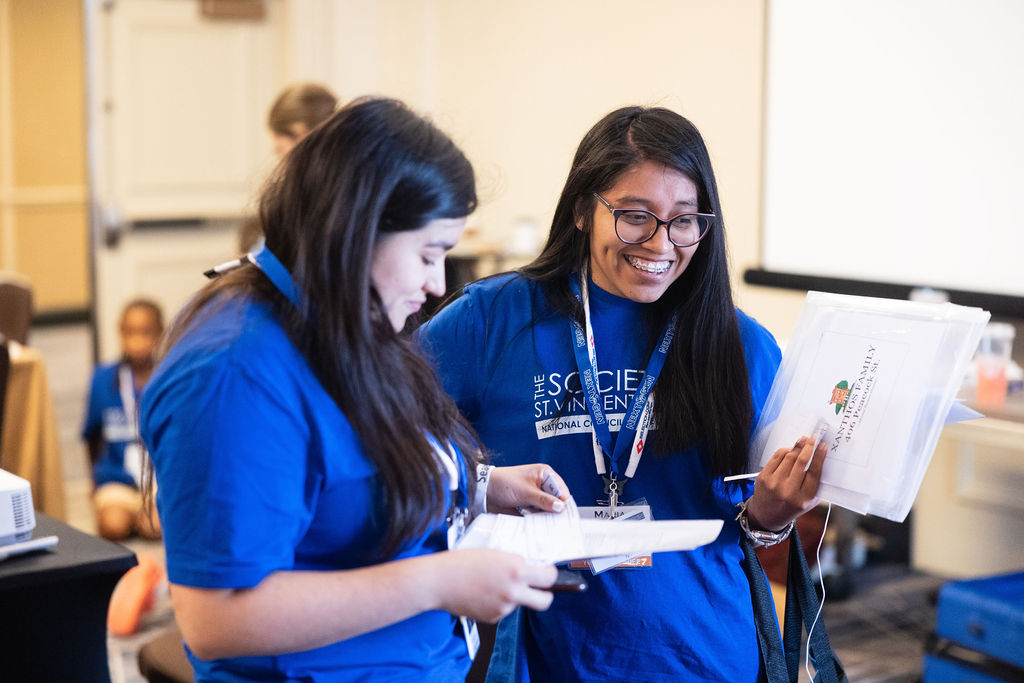
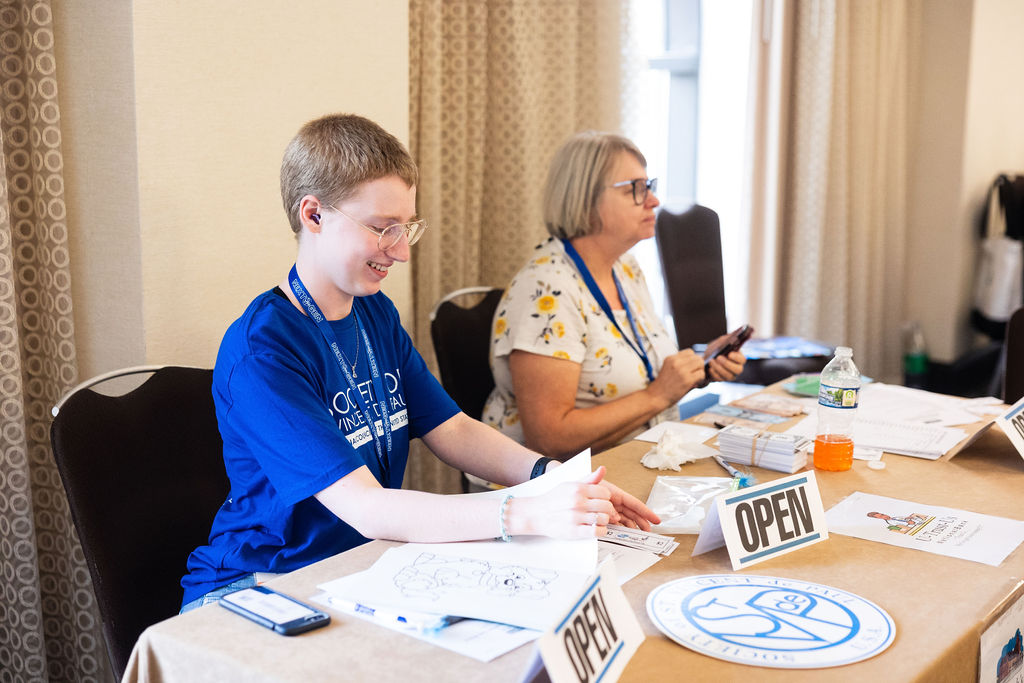
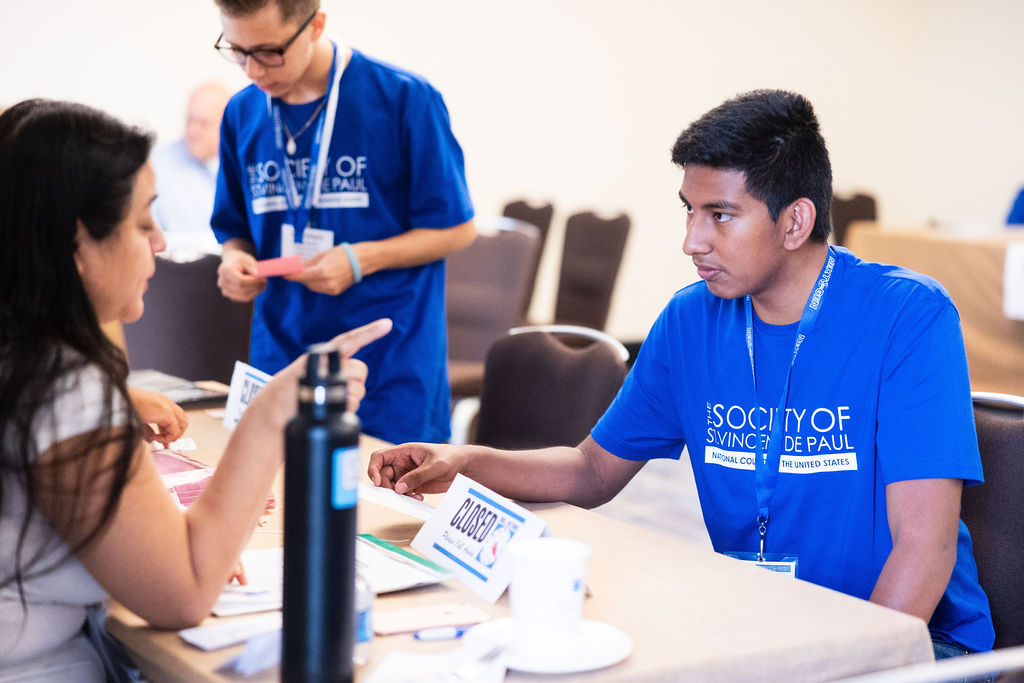
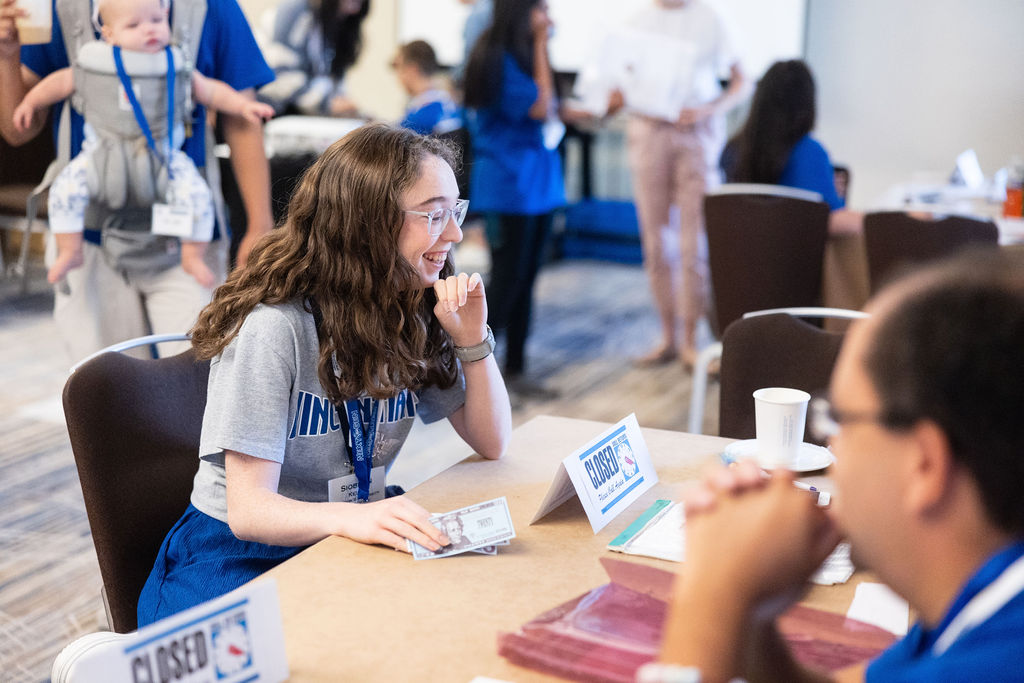
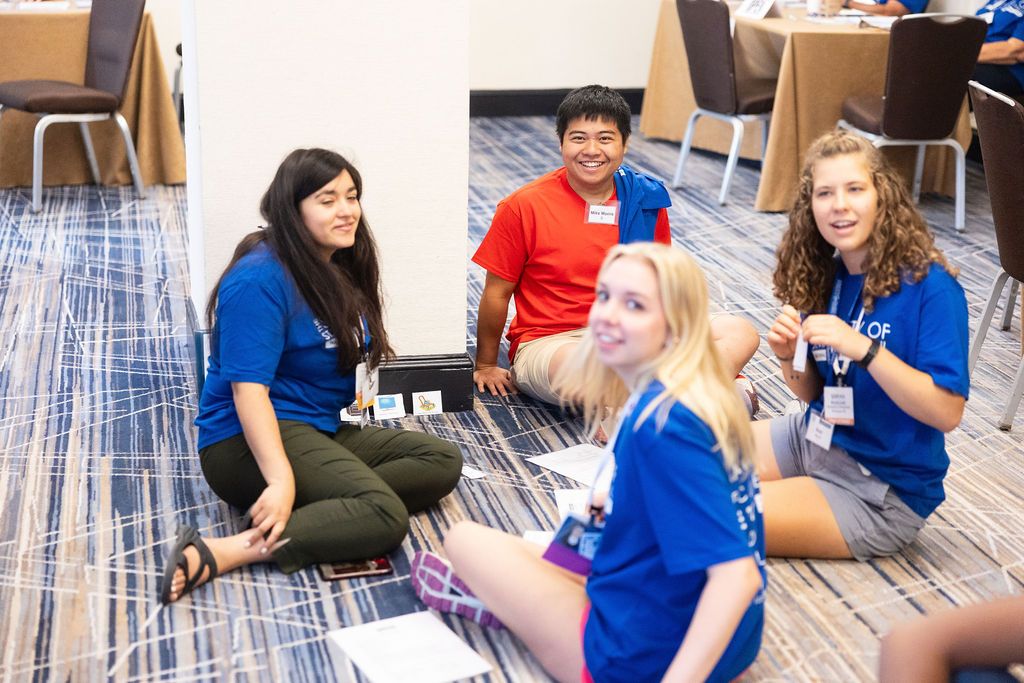
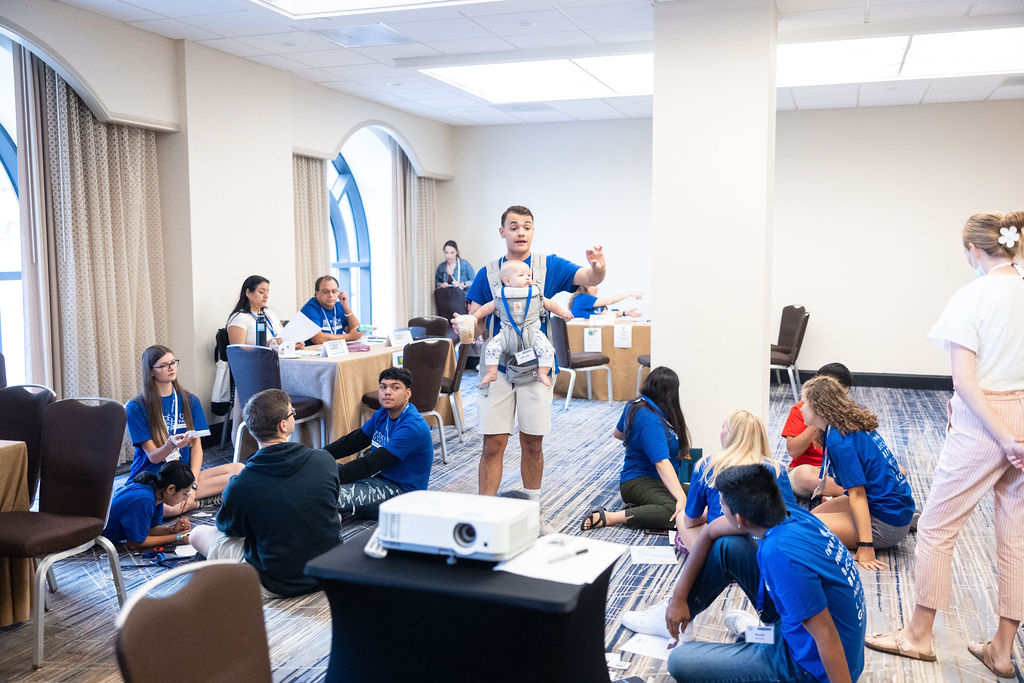
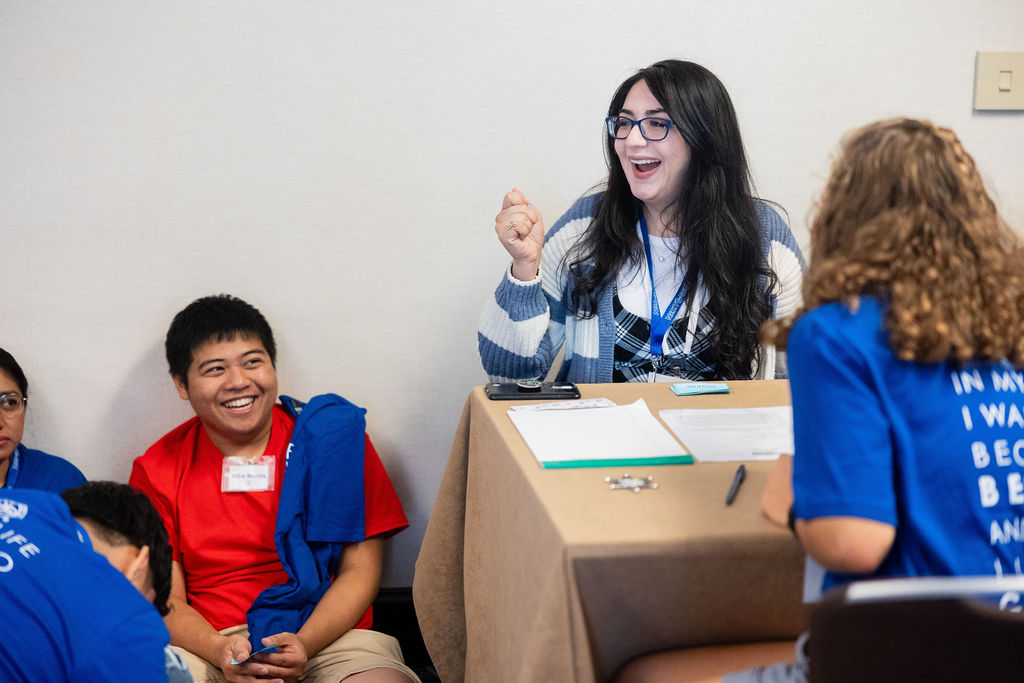
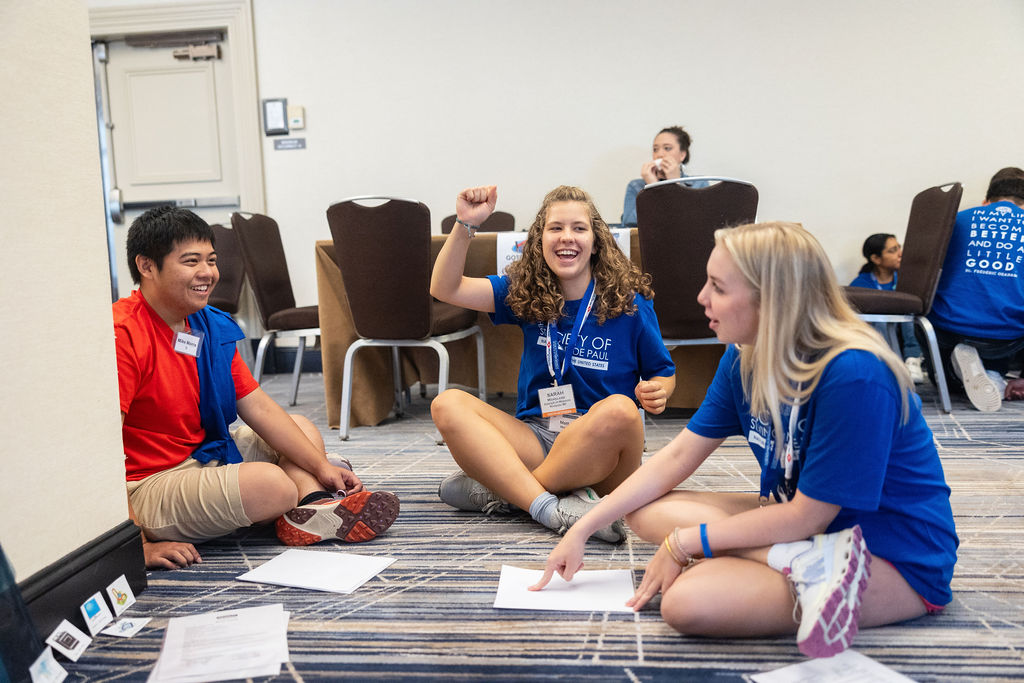
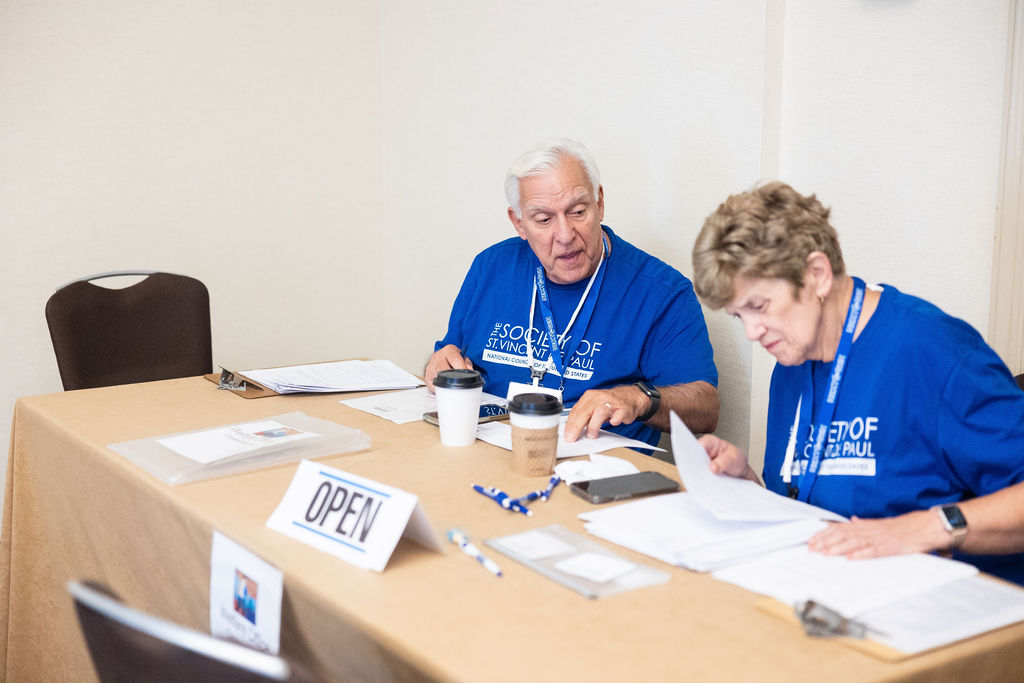
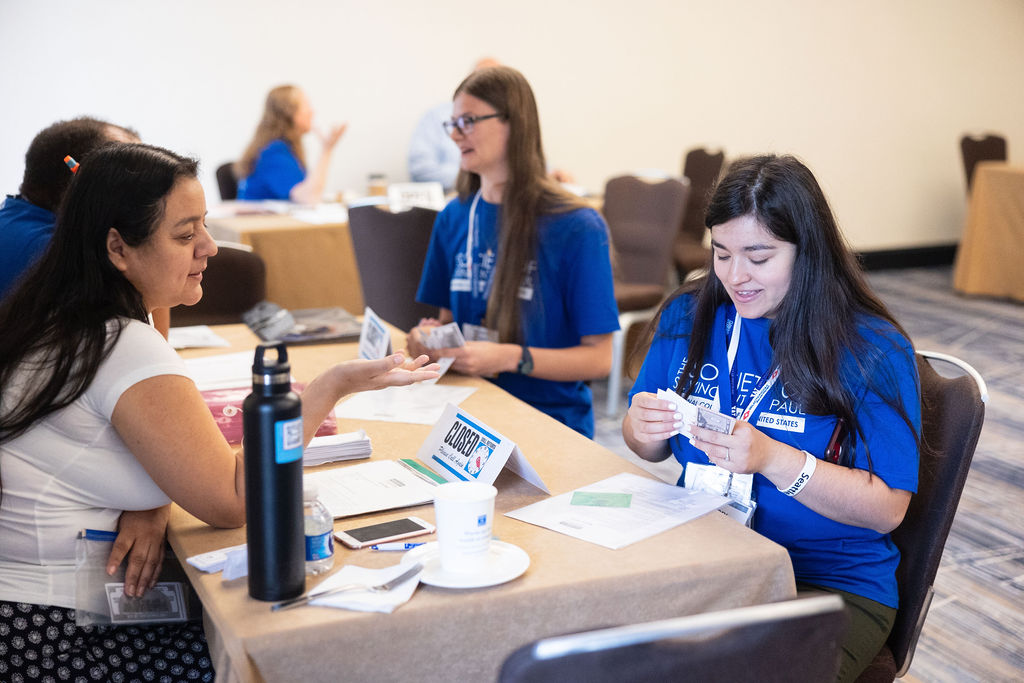










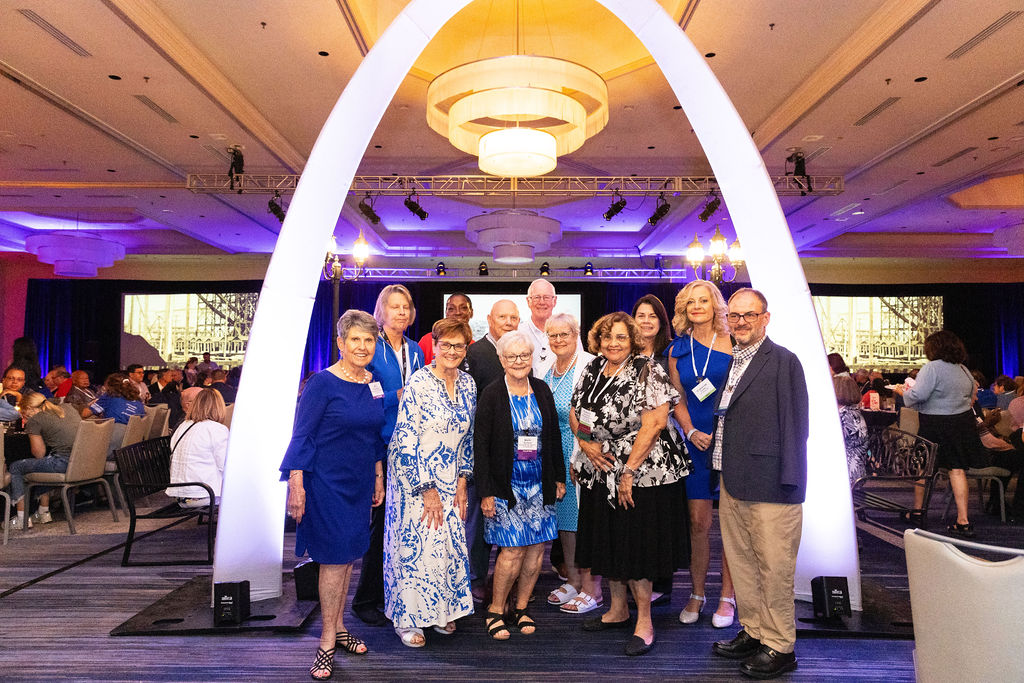
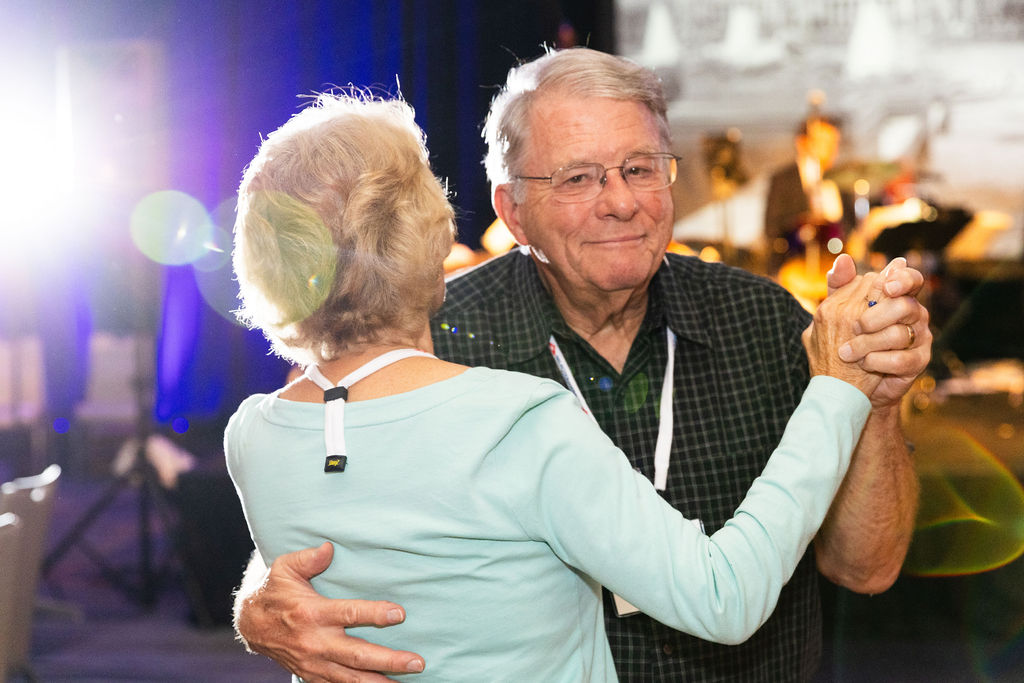
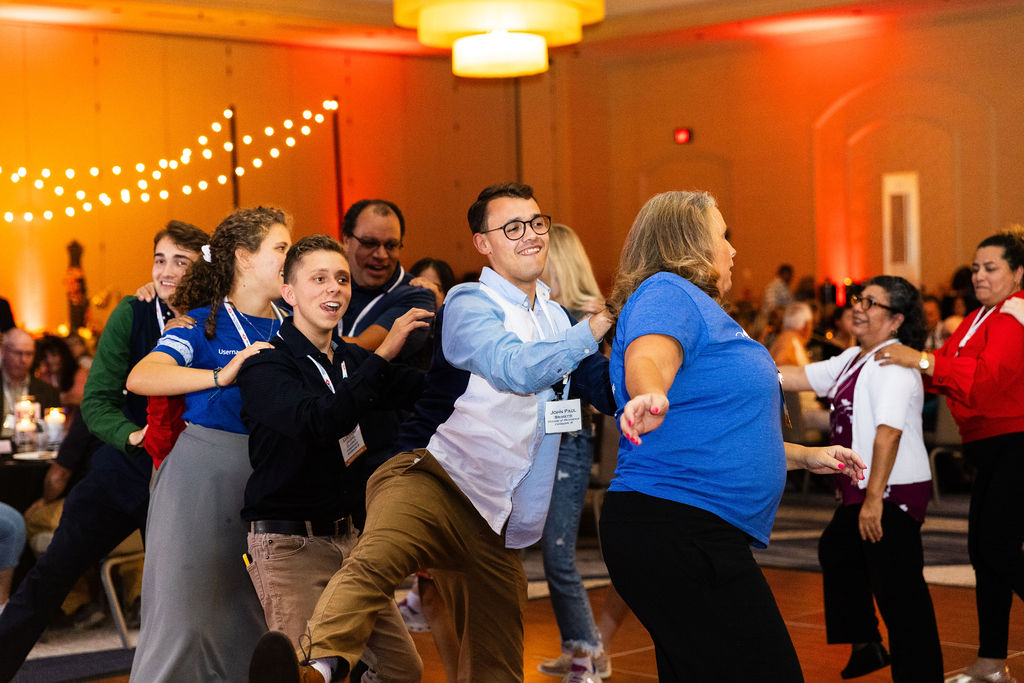
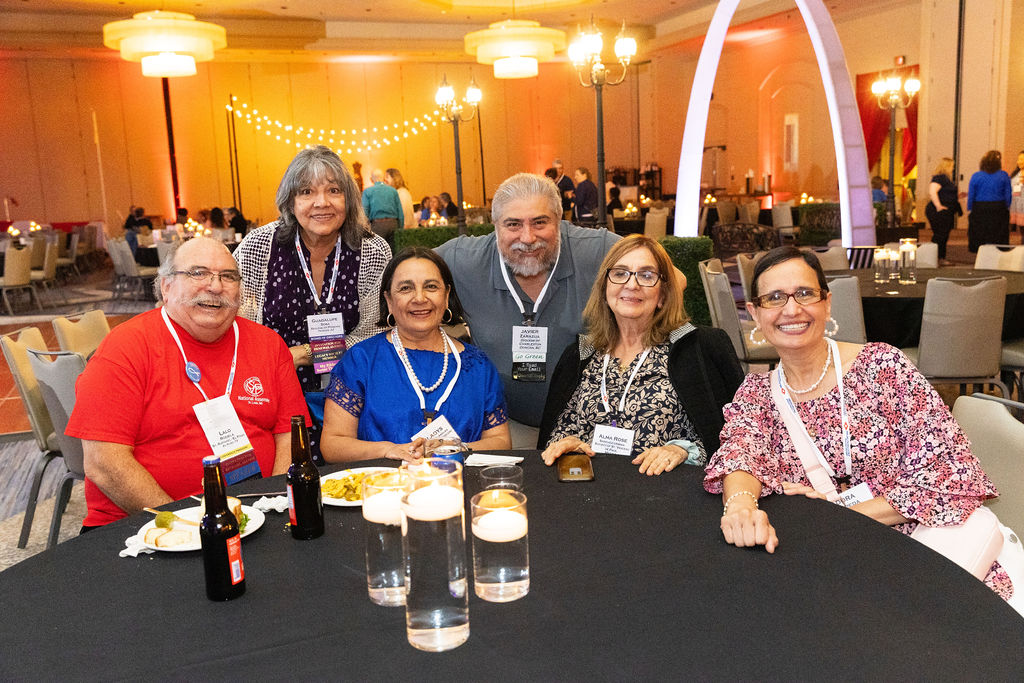
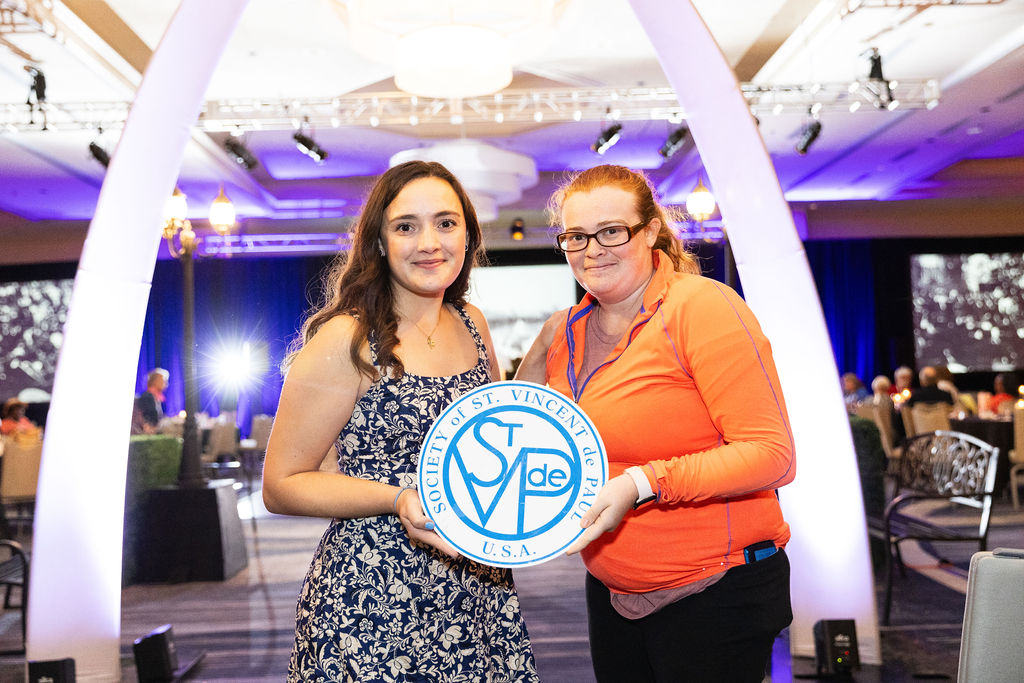
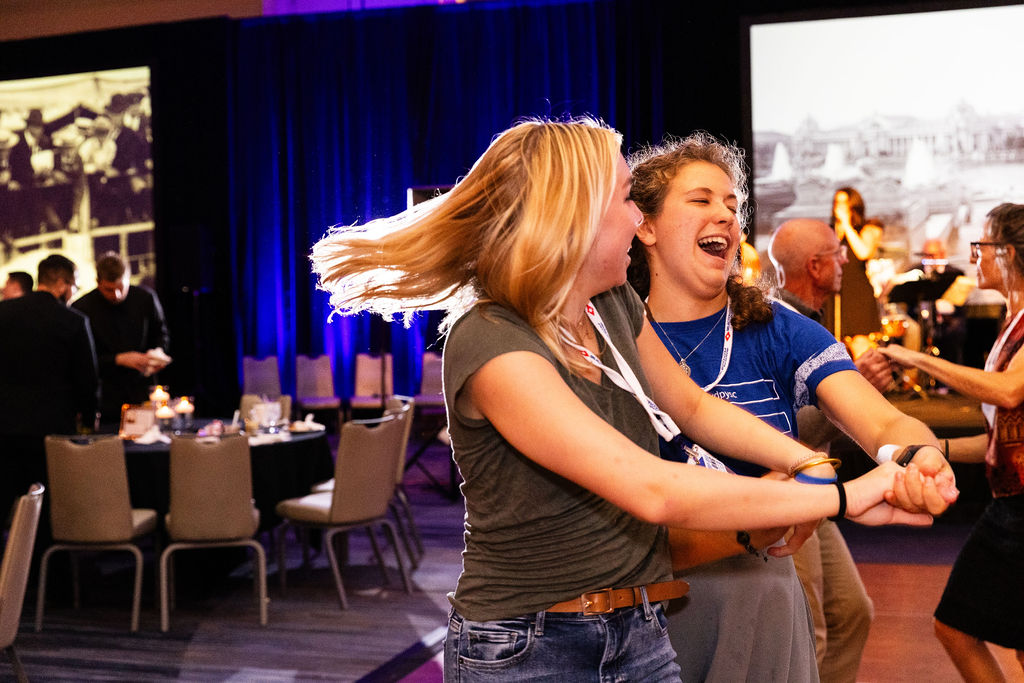
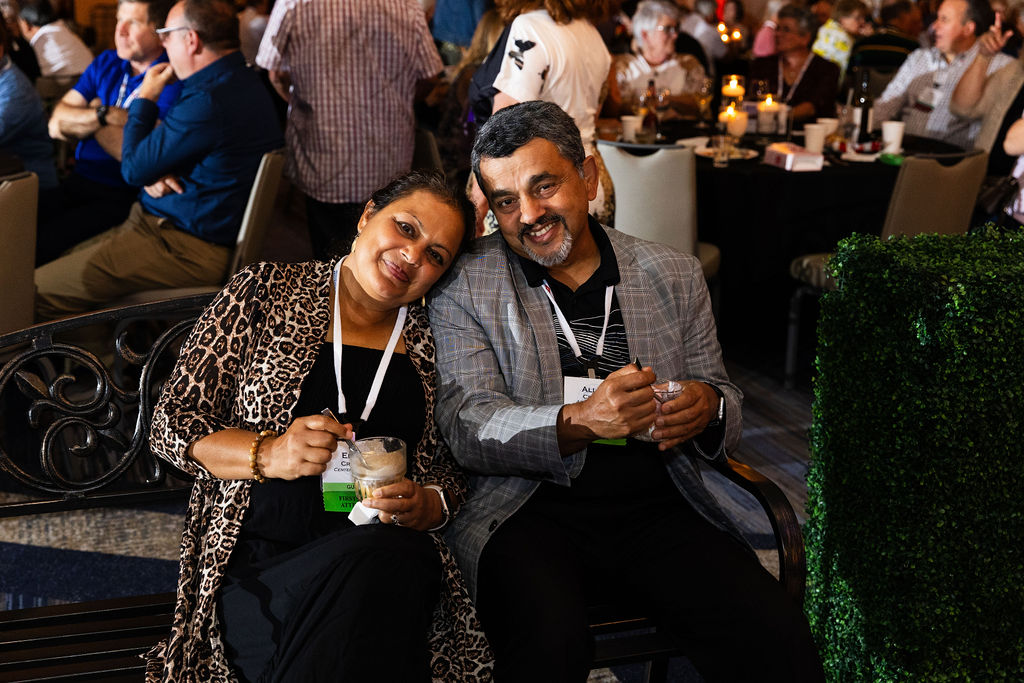
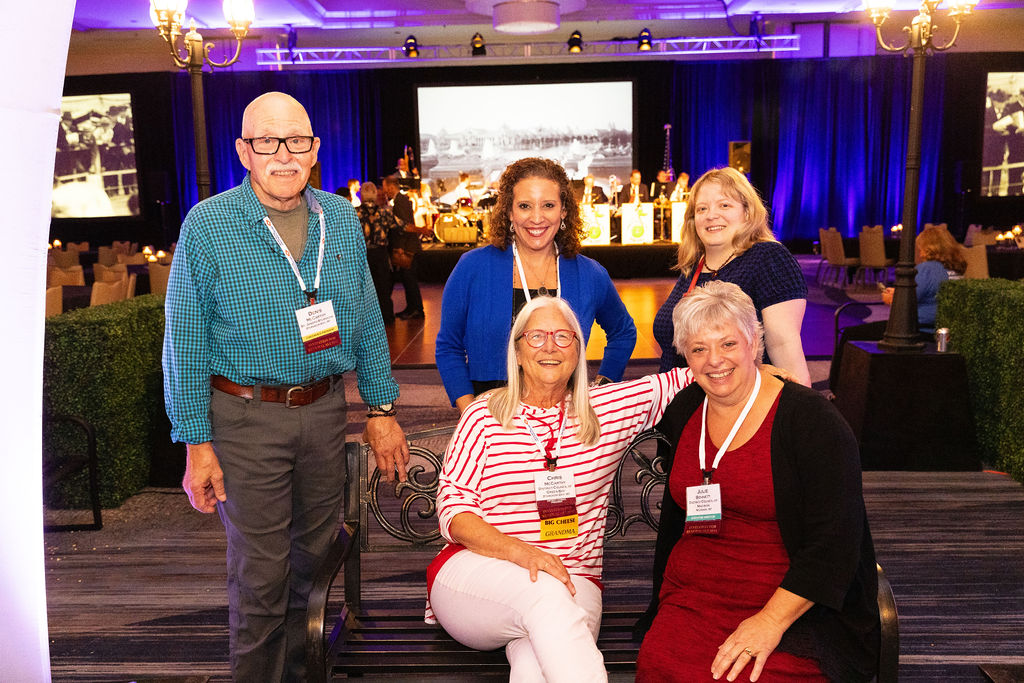
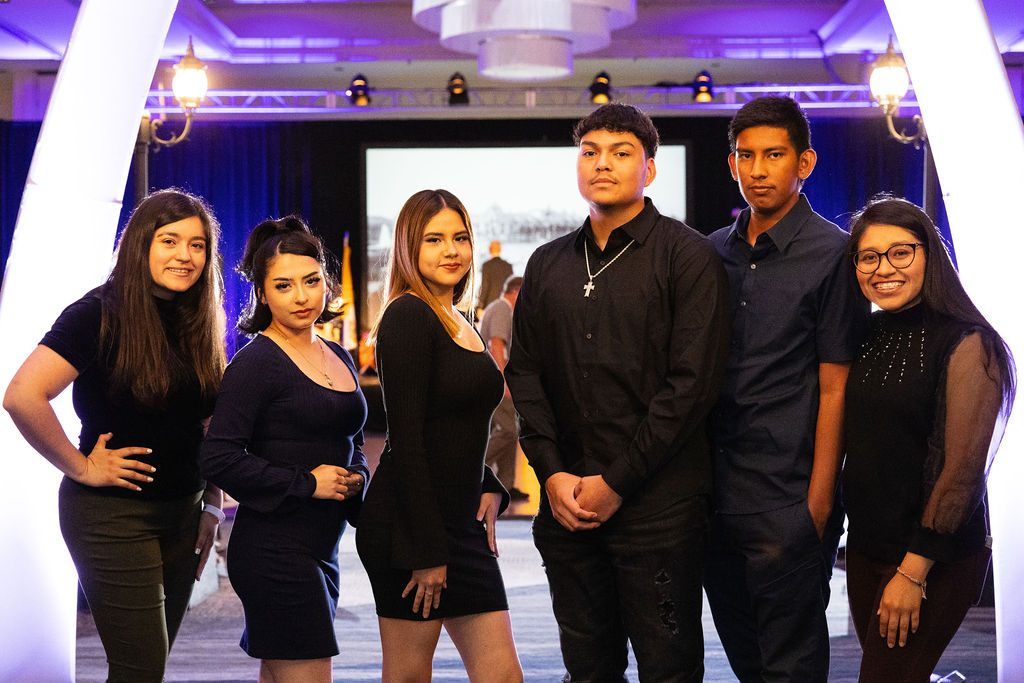
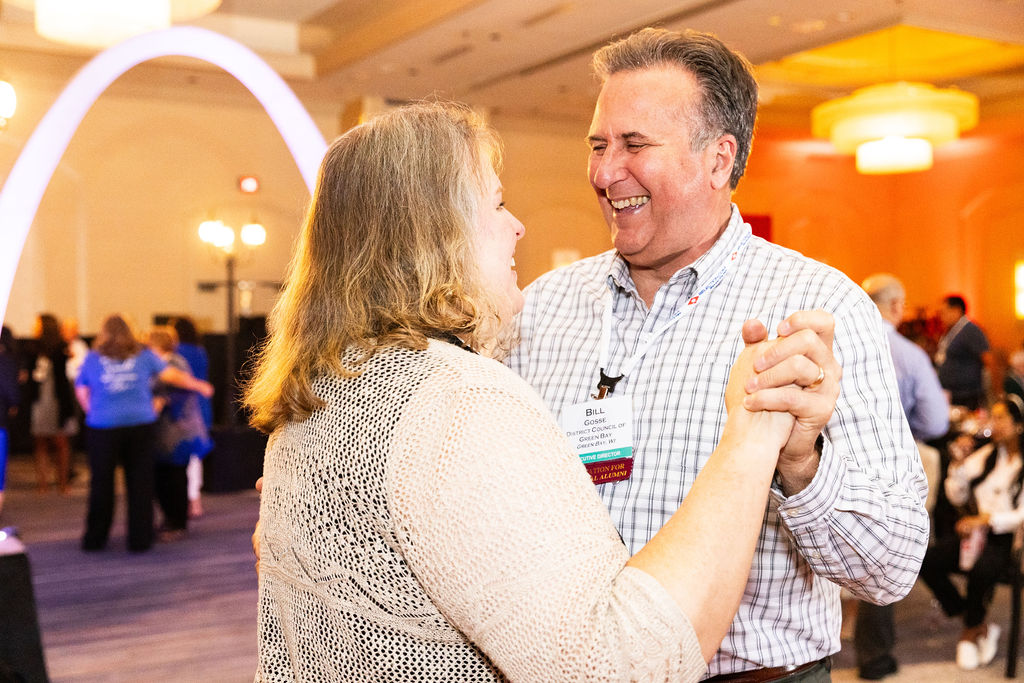
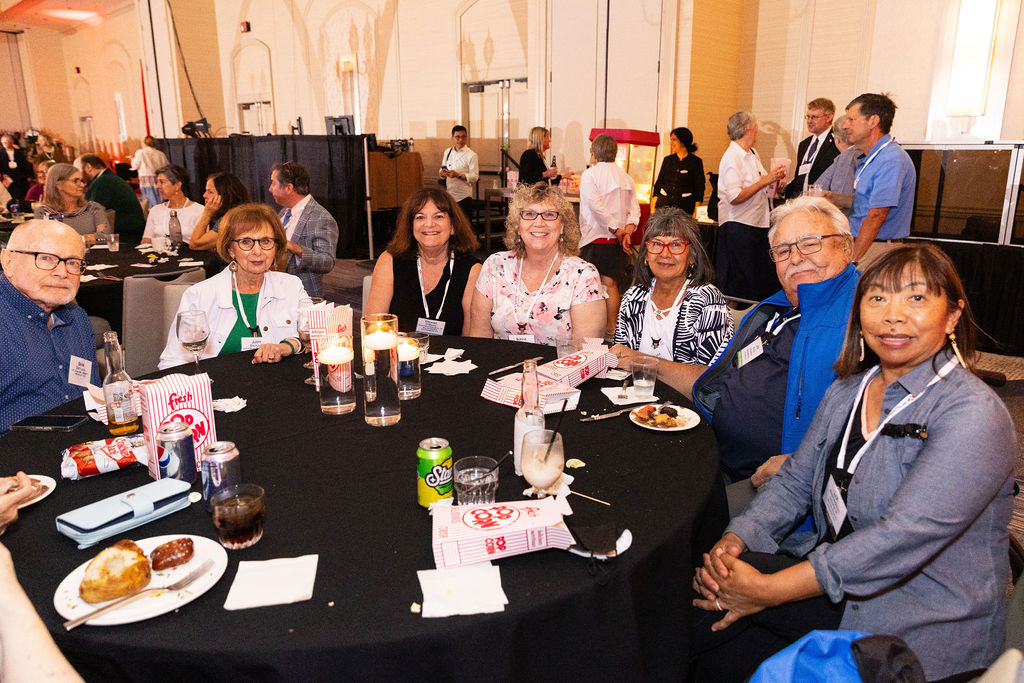
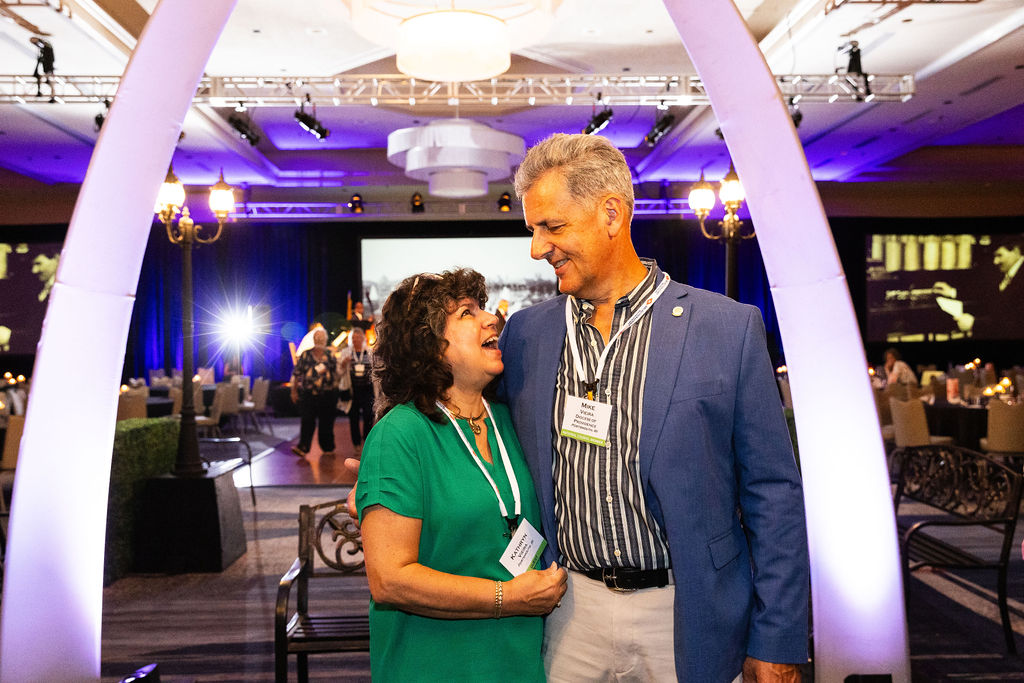
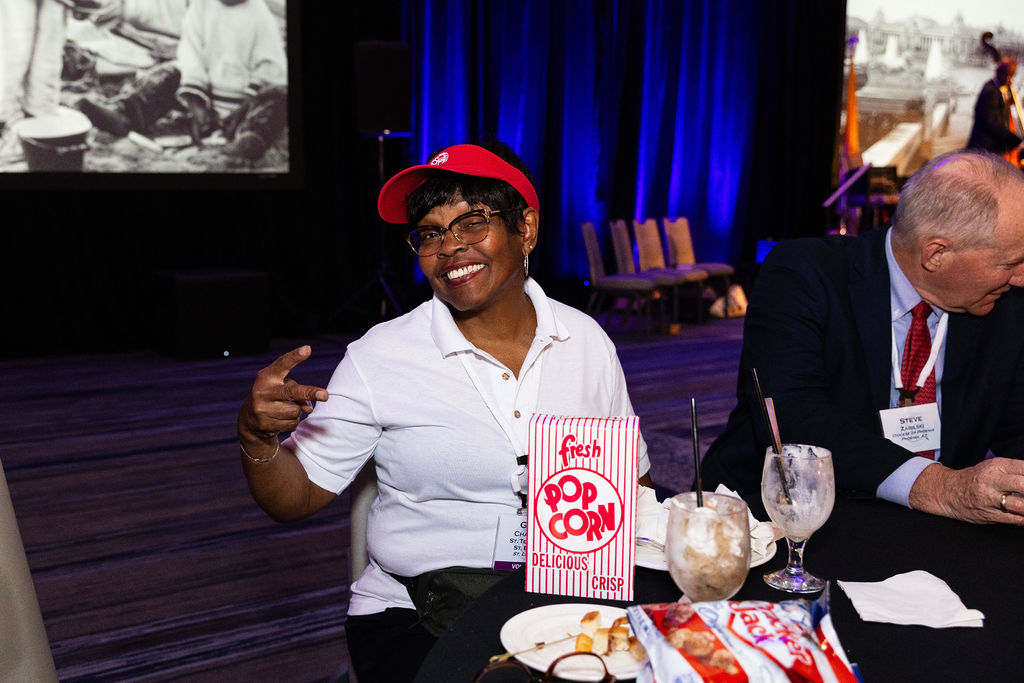
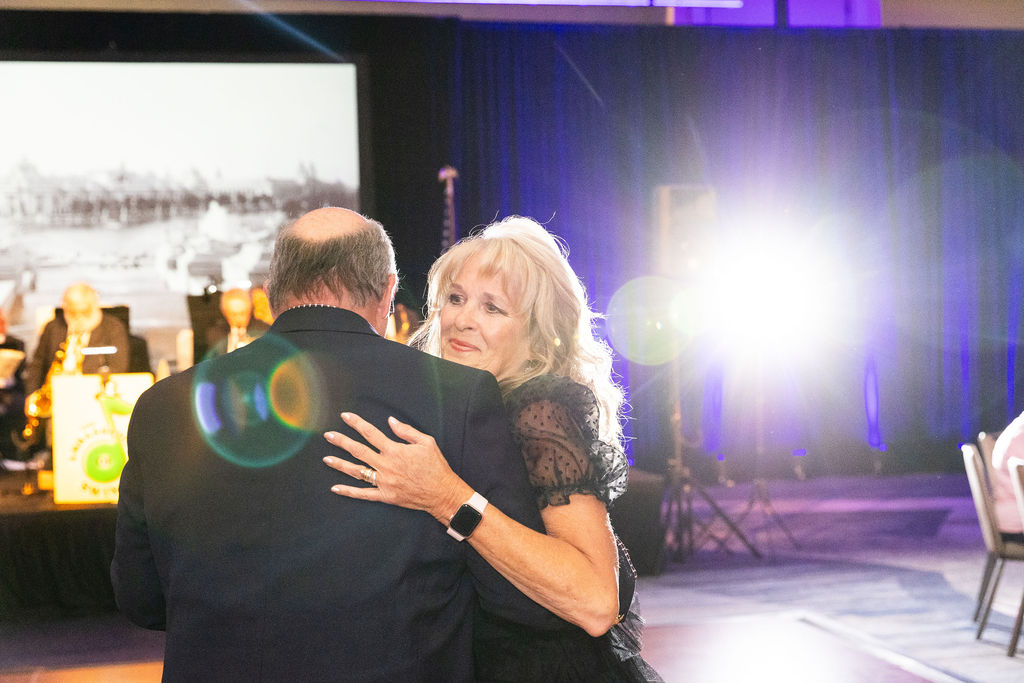
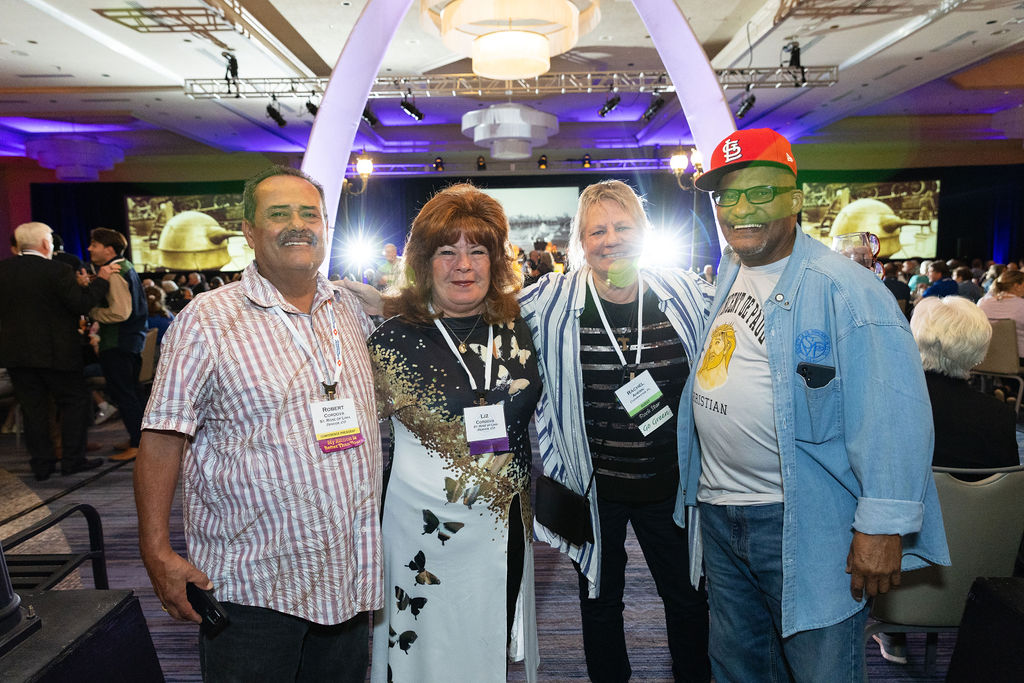
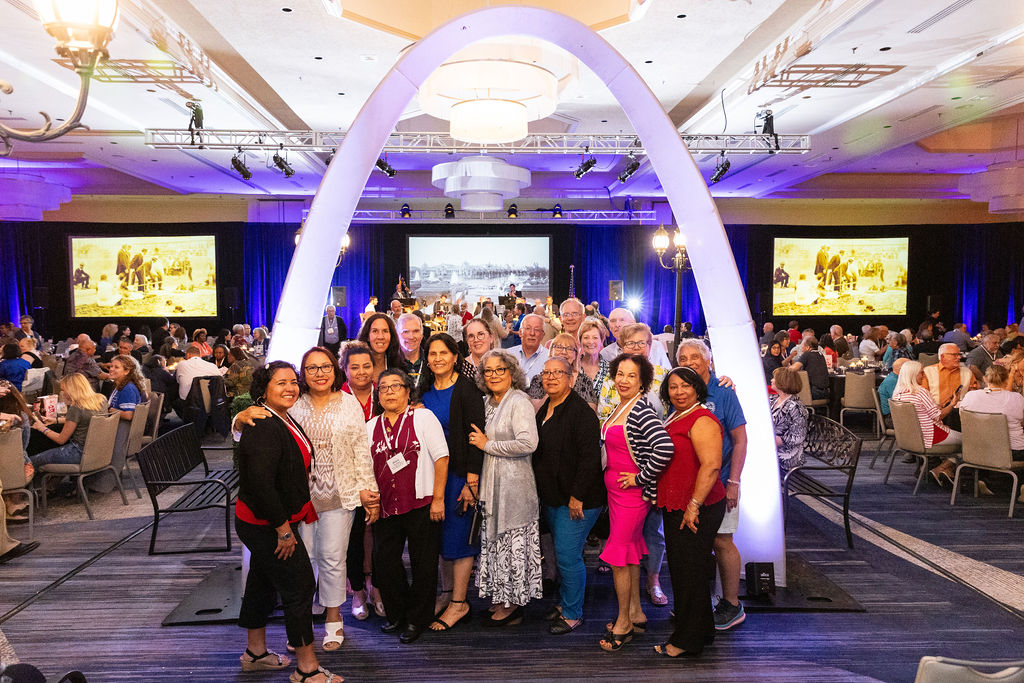
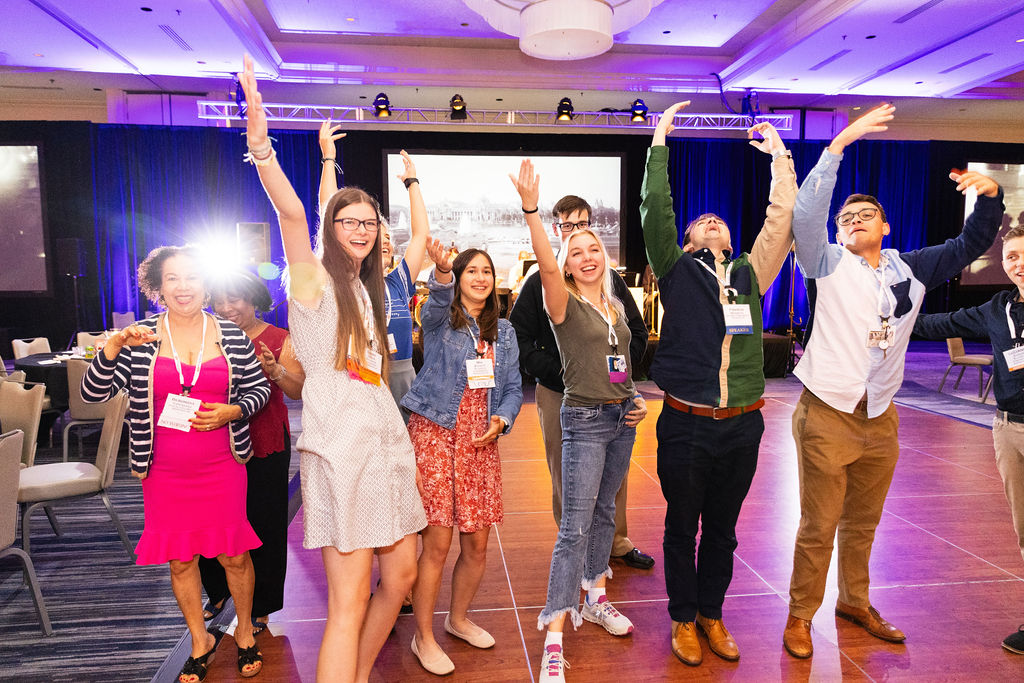
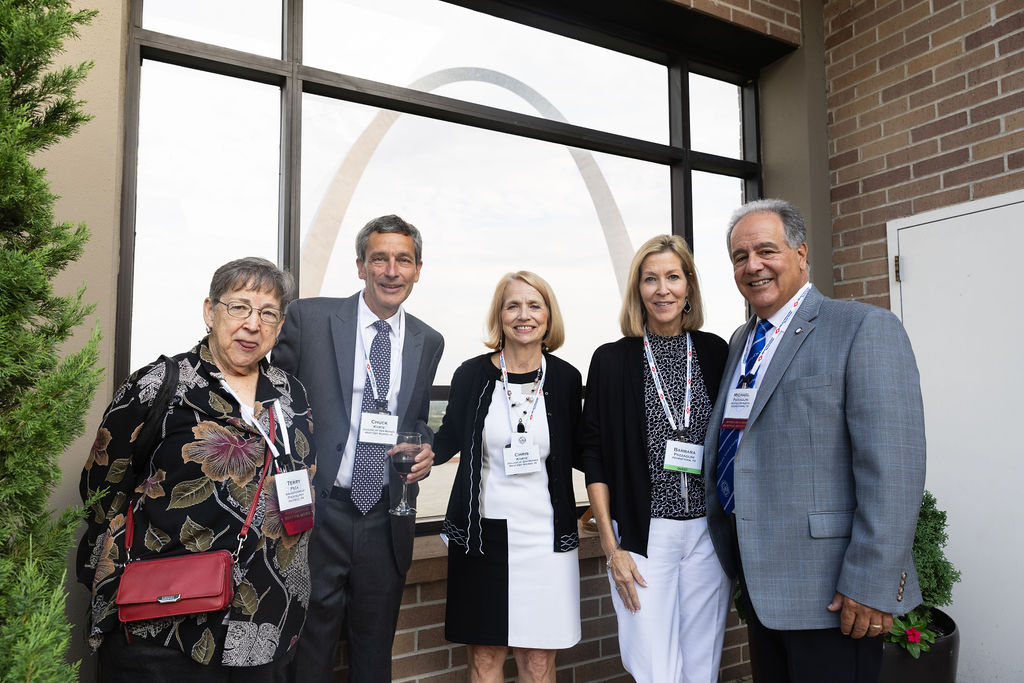
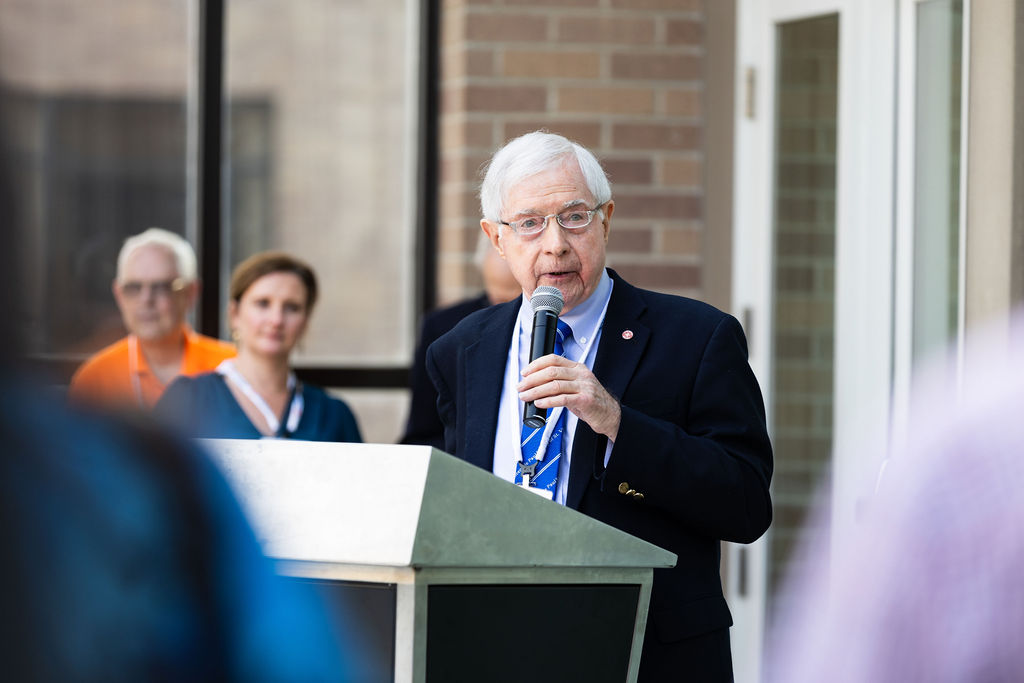
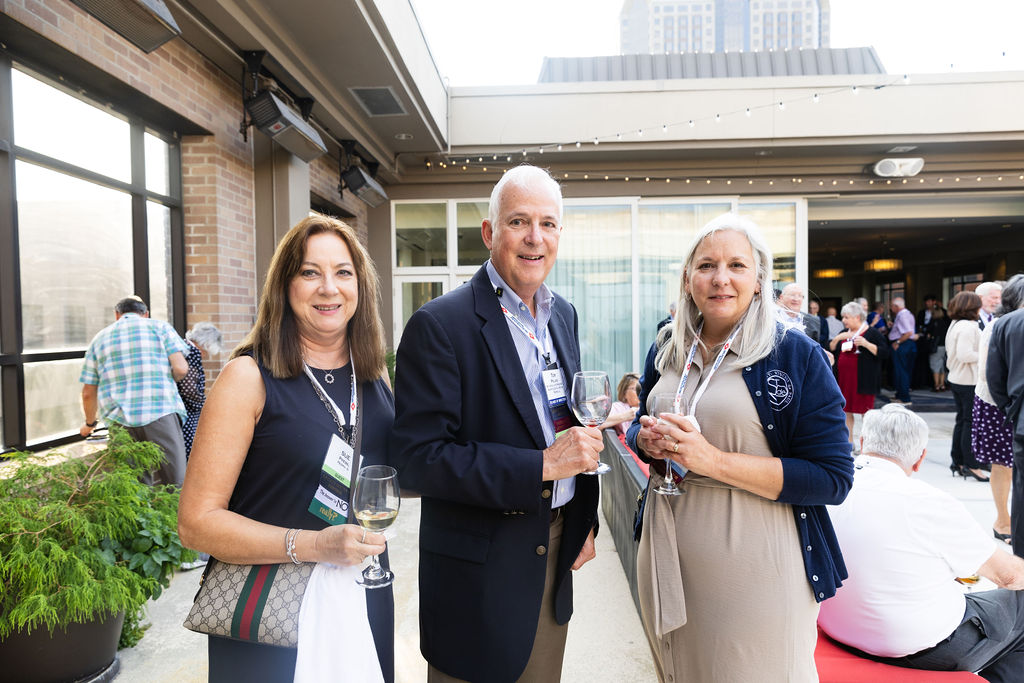
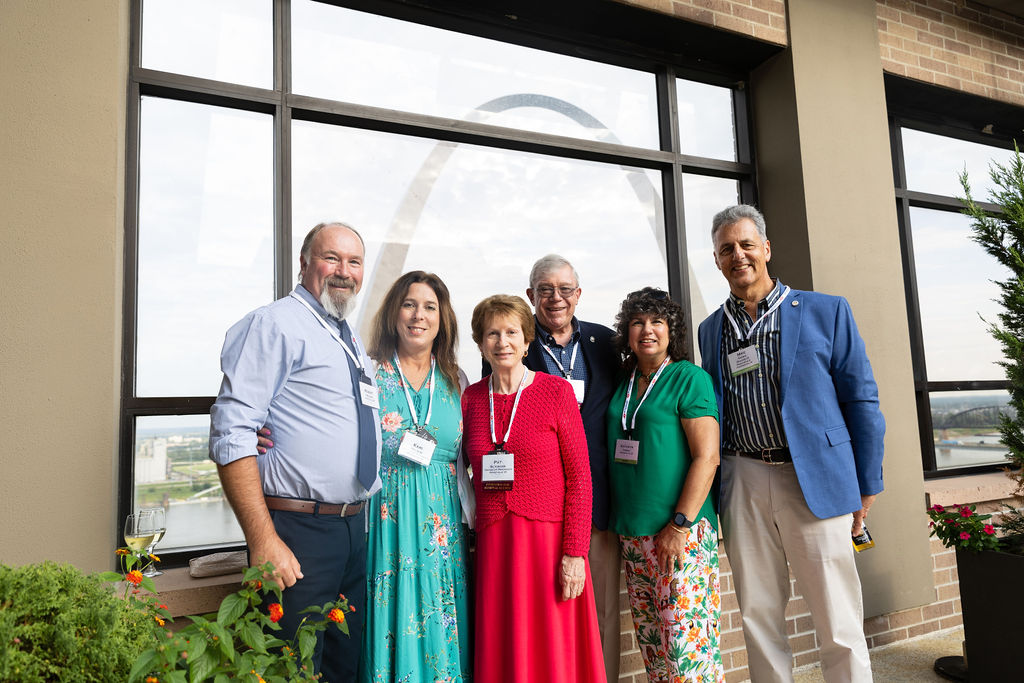
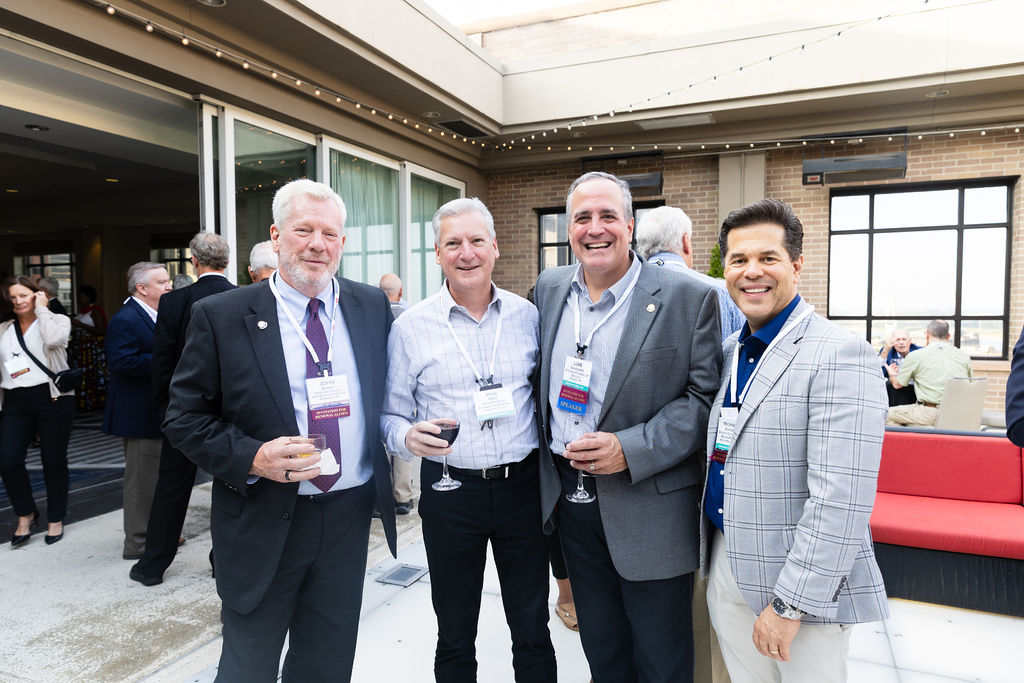
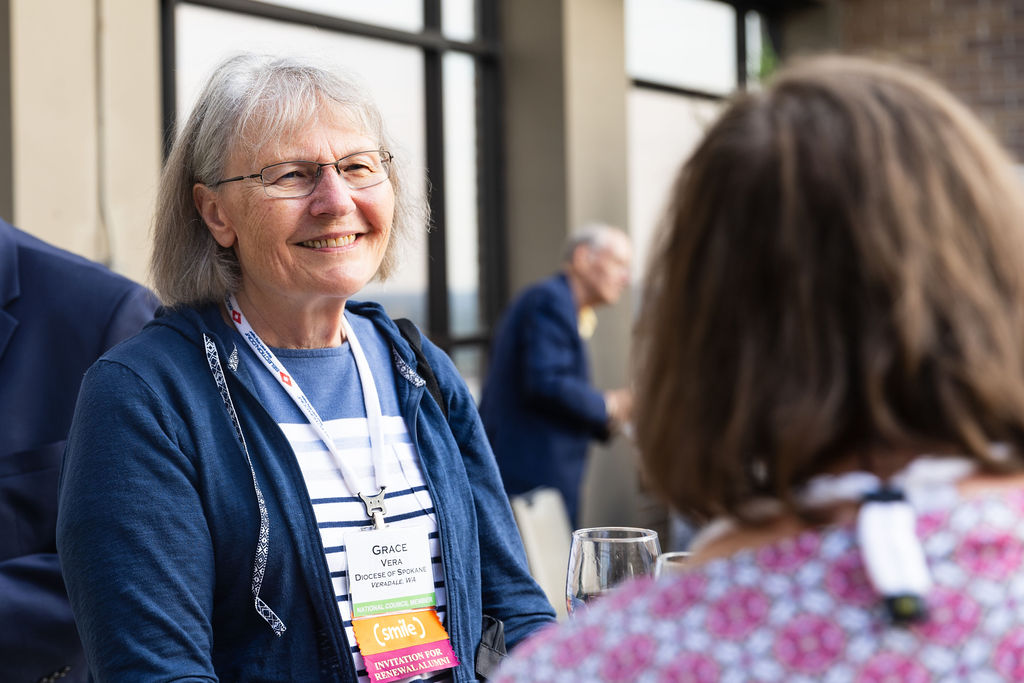
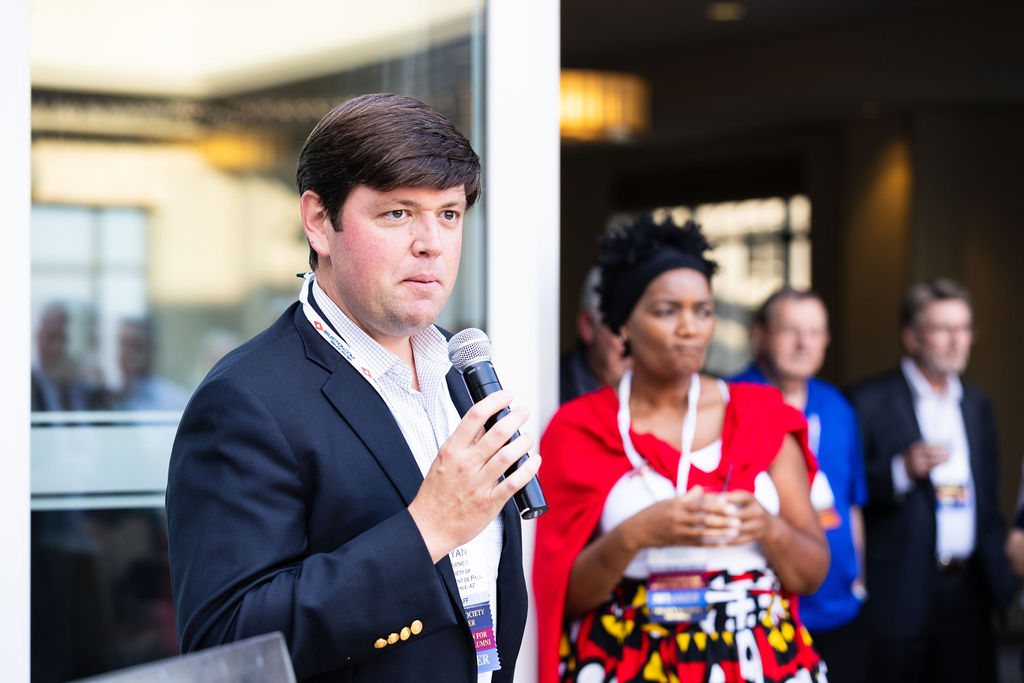
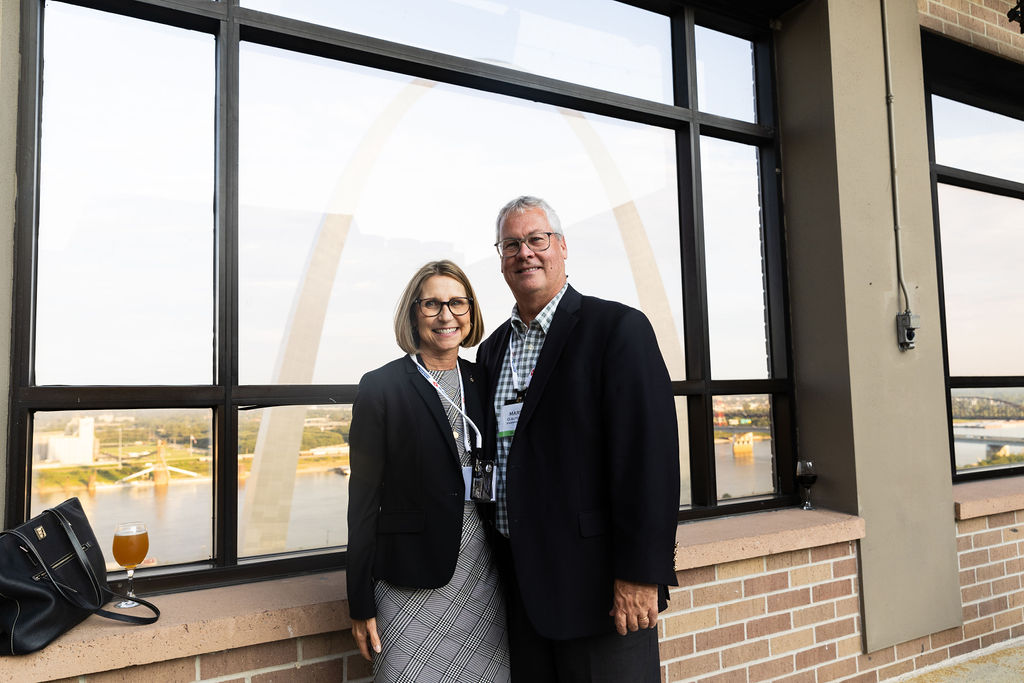
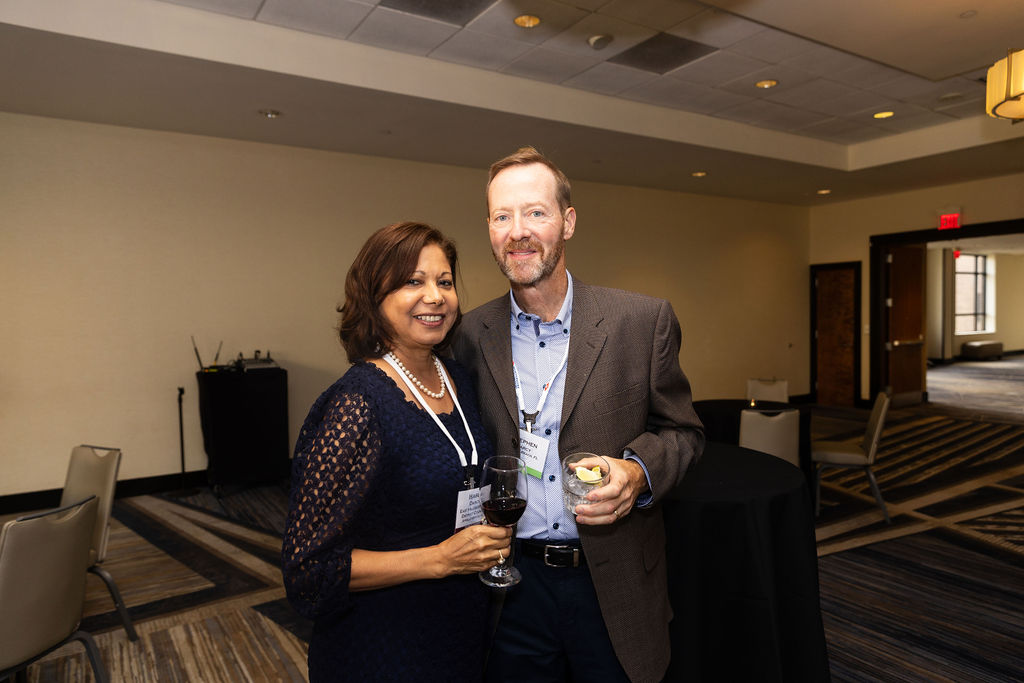
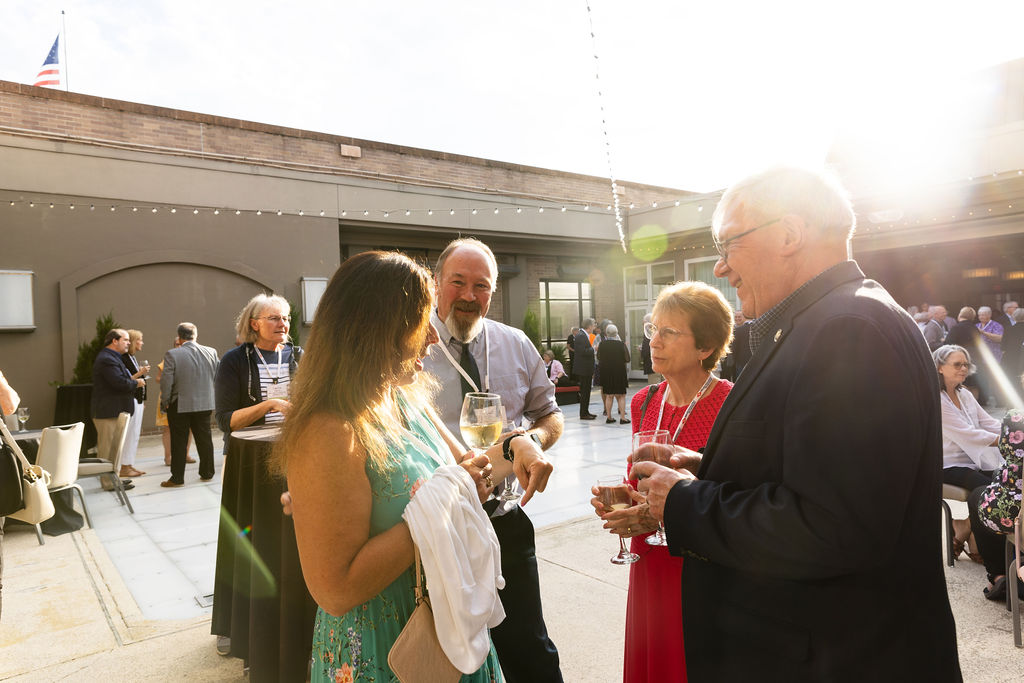
At the Society of St. Vincent de Paul’s recent National Assembly in St. Louis, the SVdP National Foundation honored former National President Deacon Gene Smith with the Founder’s Award.
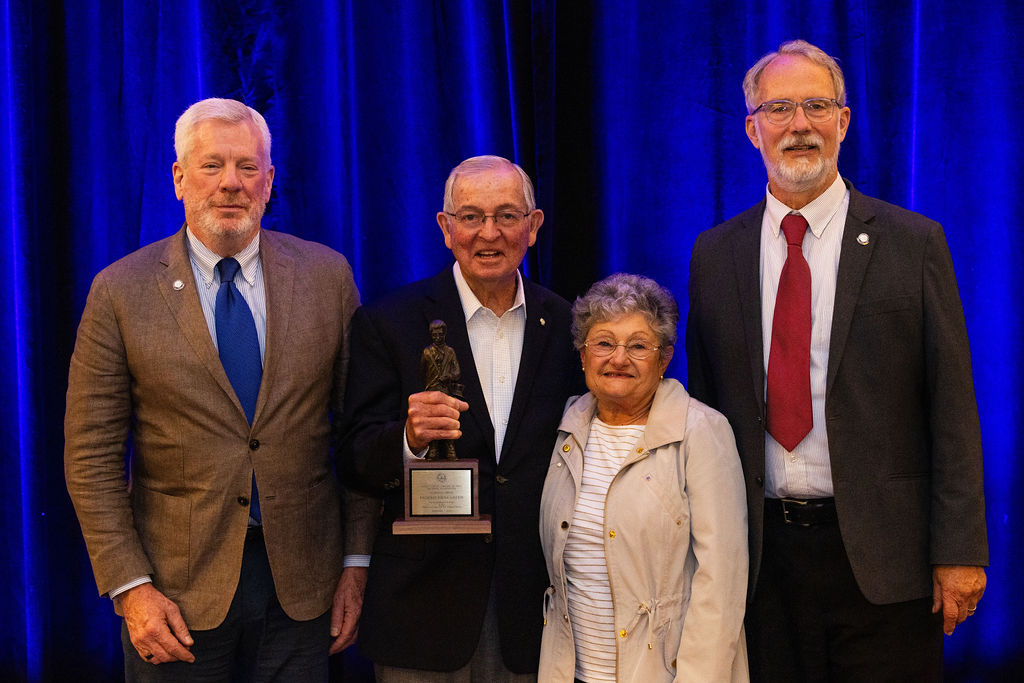 The National Foundation works to support the work of the National Council and strengthens the Vincentian network of charity through financial support and other endeavors. Their award recognizes Smith’s exceptional service and outstanding contributions to the National Council of the United States, Society of St. Vincent de Paul.
The National Foundation works to support the work of the National Council and strengthens the Vincentian network of charity through financial support and other endeavors. Their award recognizes Smith’s exceptional service and outstanding contributions to the National Council of the United States, Society of St. Vincent de Paul.
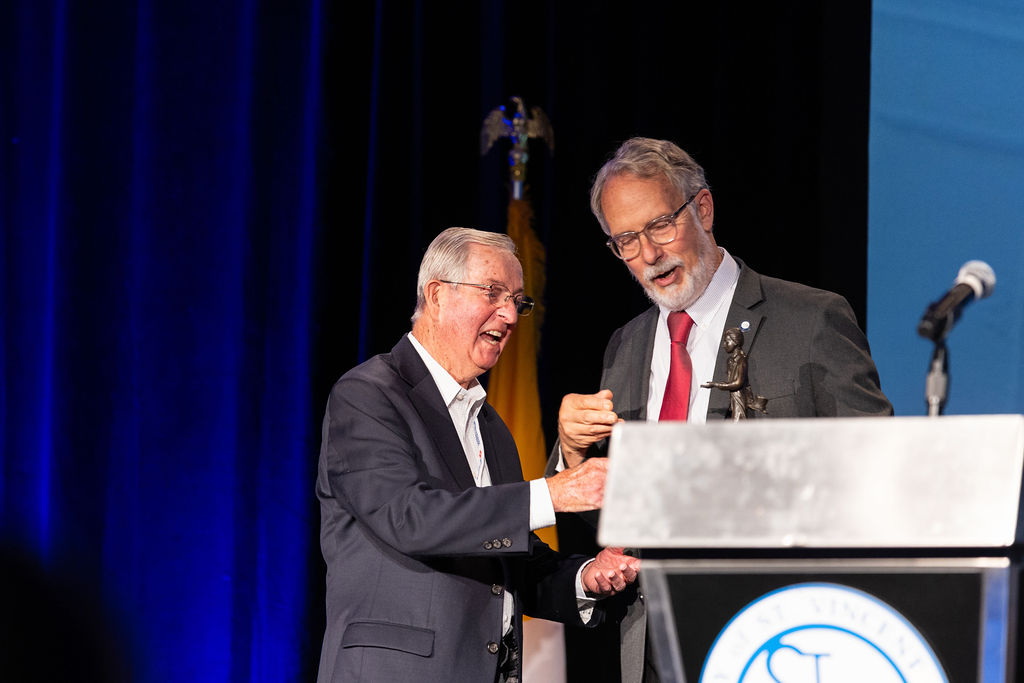 Smith served a six-year term as National President from 1999 to 2005. Among the hallmarks of his presidency, Smith let the Society through its first strategic plan, and helped implement the Society’s first formal mission statement. He also oversaw establishment of the Voice of the Poor Committee, developed “to uphold Catholic social teaching by researching, validating, documenting, advocating, and promulgating issues related to the condition of the poor and disenfranchised.”
Smith served a six-year term as National President from 1999 to 2005. Among the hallmarks of his presidency, Smith let the Society through its first strategic plan, and helped implement the Society’s first formal mission statement. He also oversaw establishment of the Voice of the Poor Committee, developed “to uphold Catholic social teaching by researching, validating, documenting, advocating, and promulgating issues related to the condition of the poor and disenfranchised.”
Congratulations, Gene! We thank you for your service and devotion to the Society.
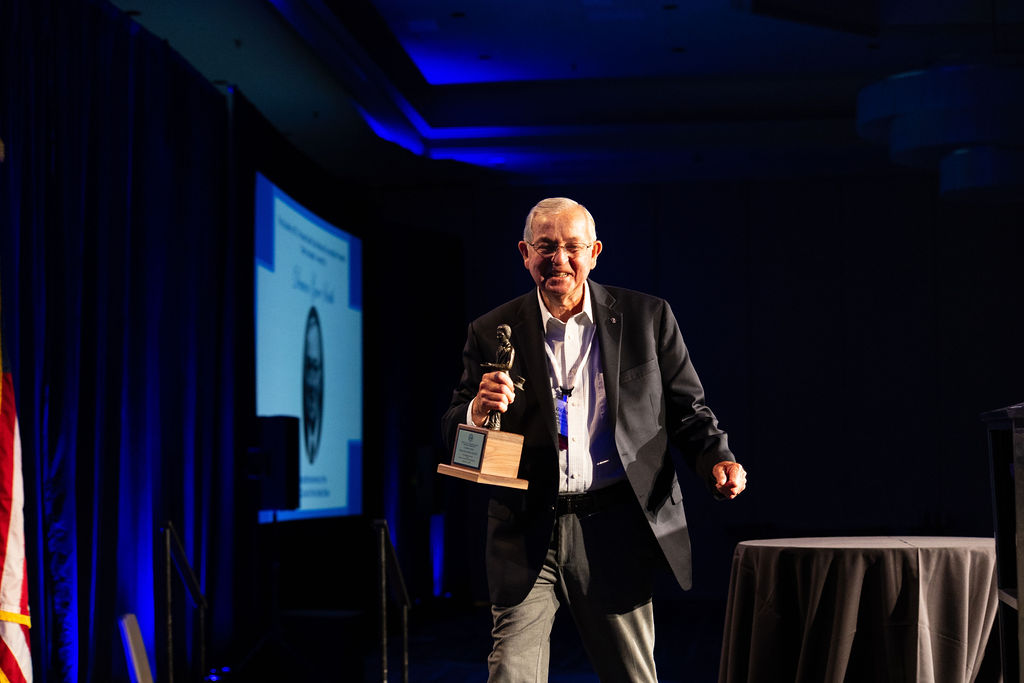
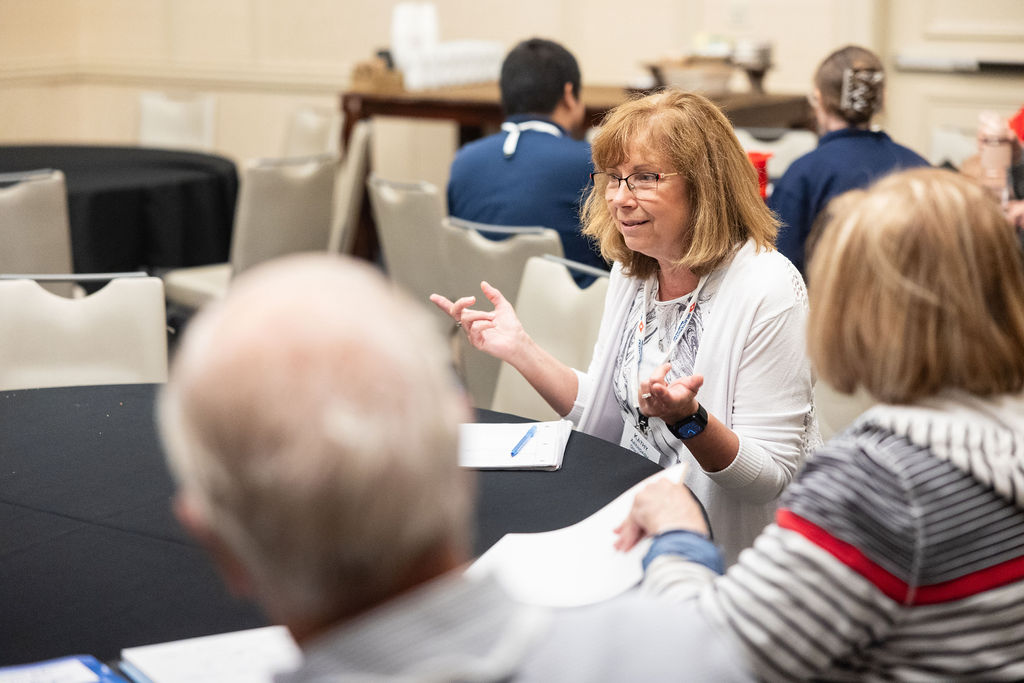
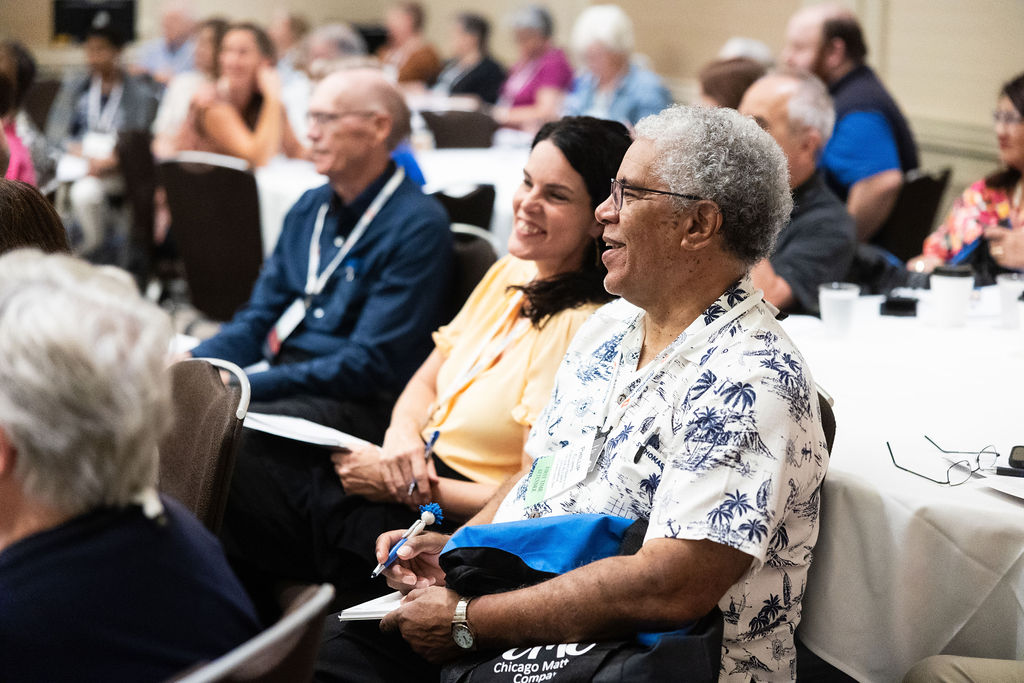
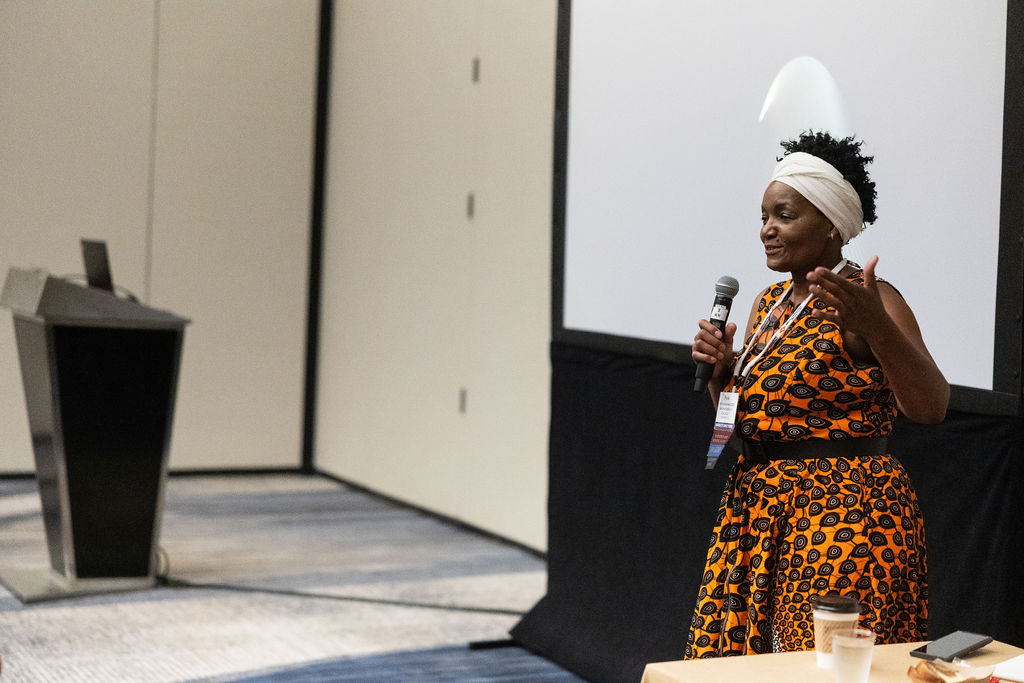
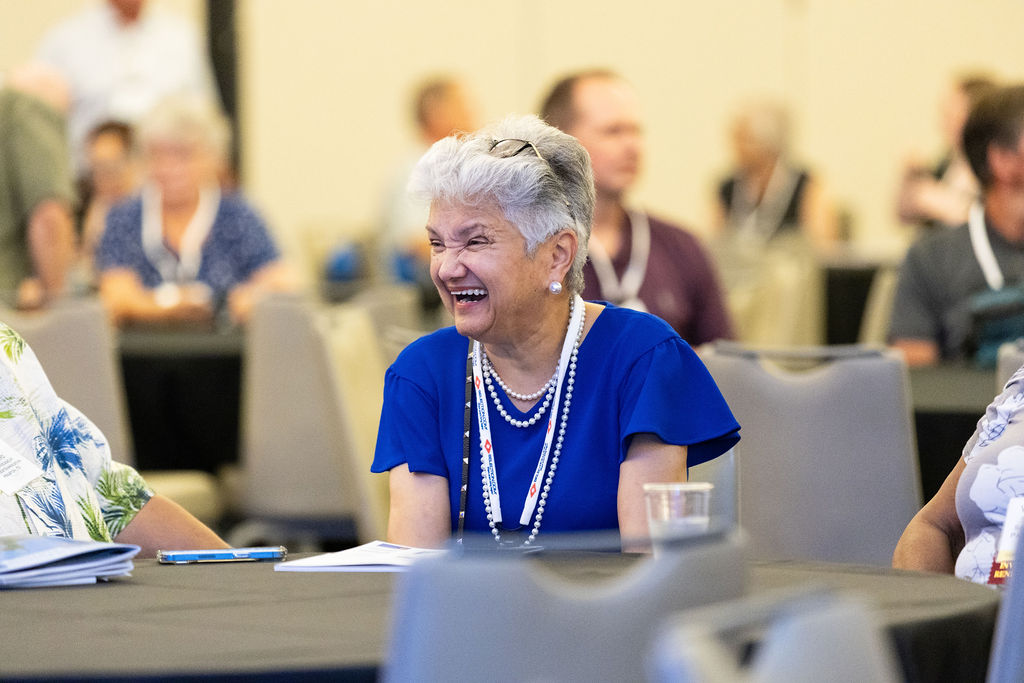
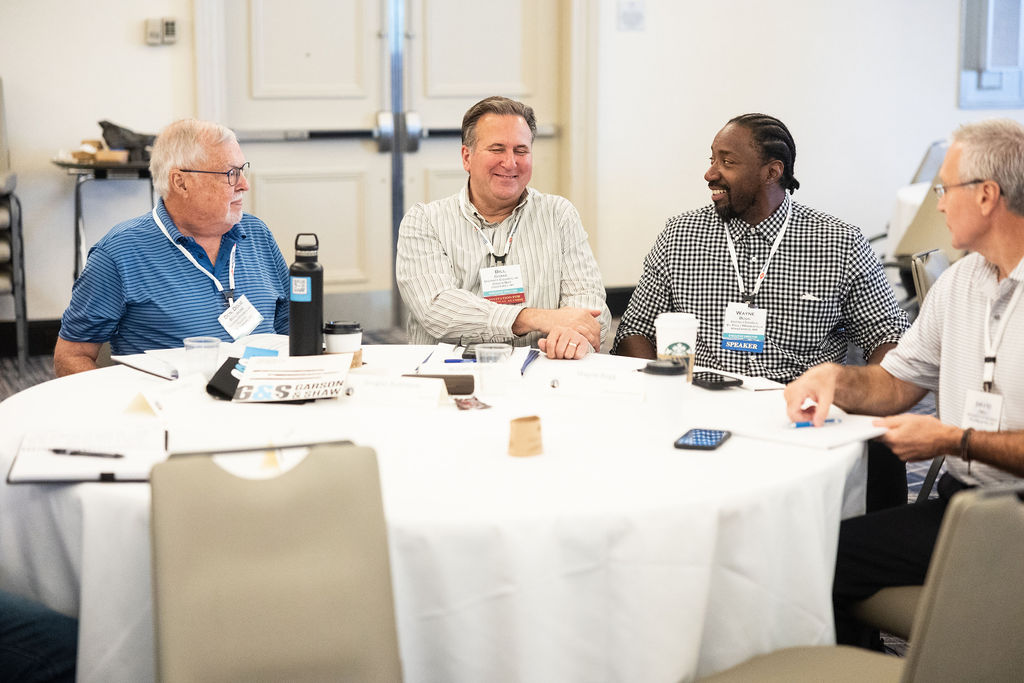
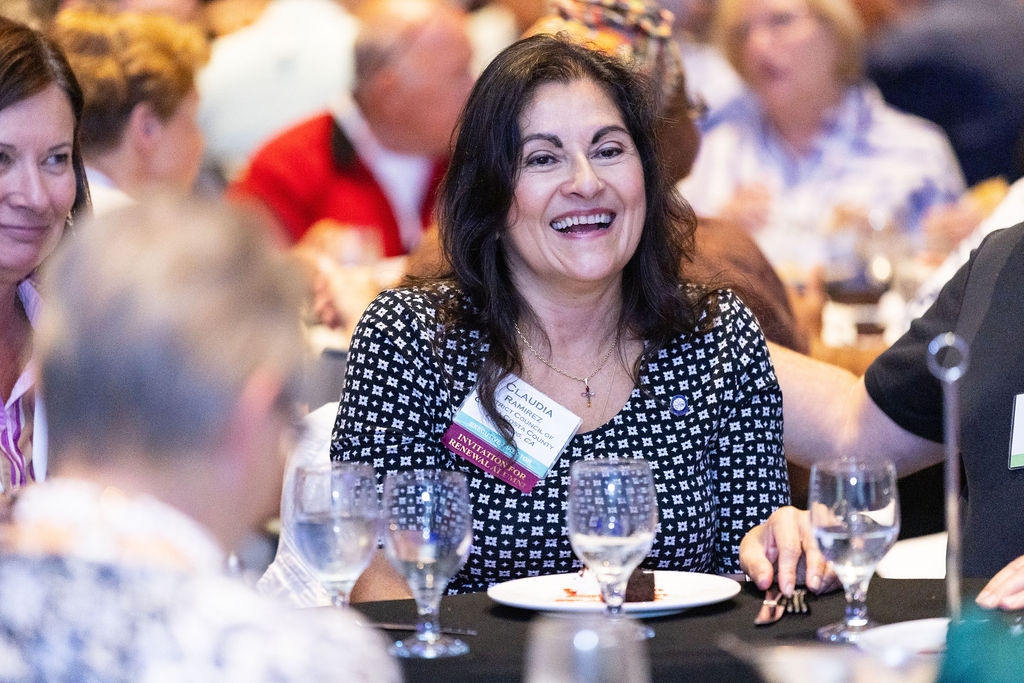
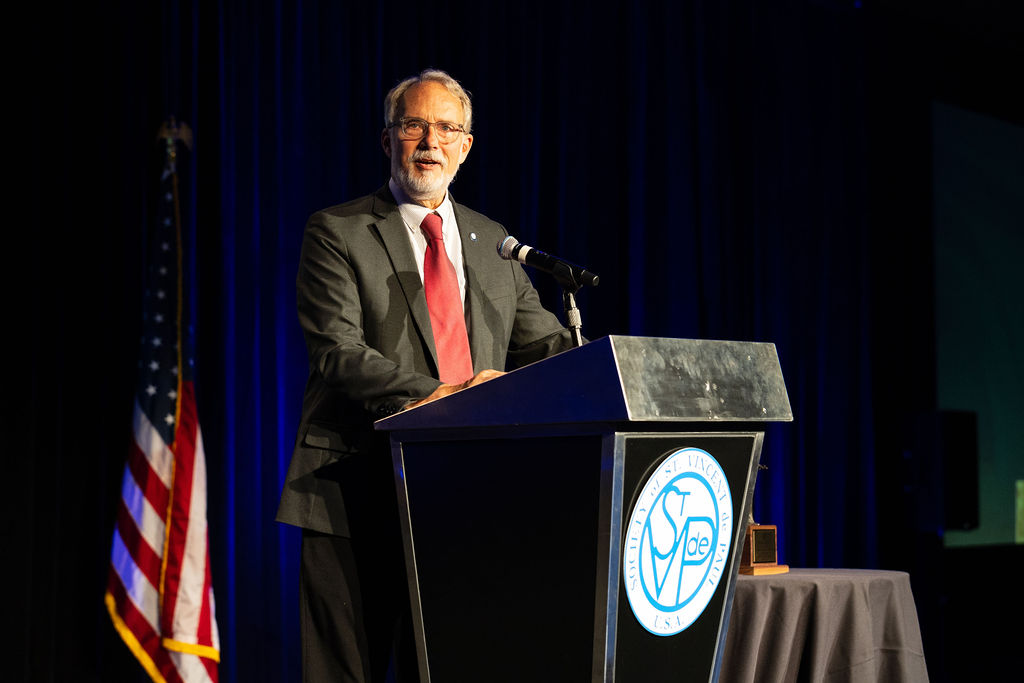
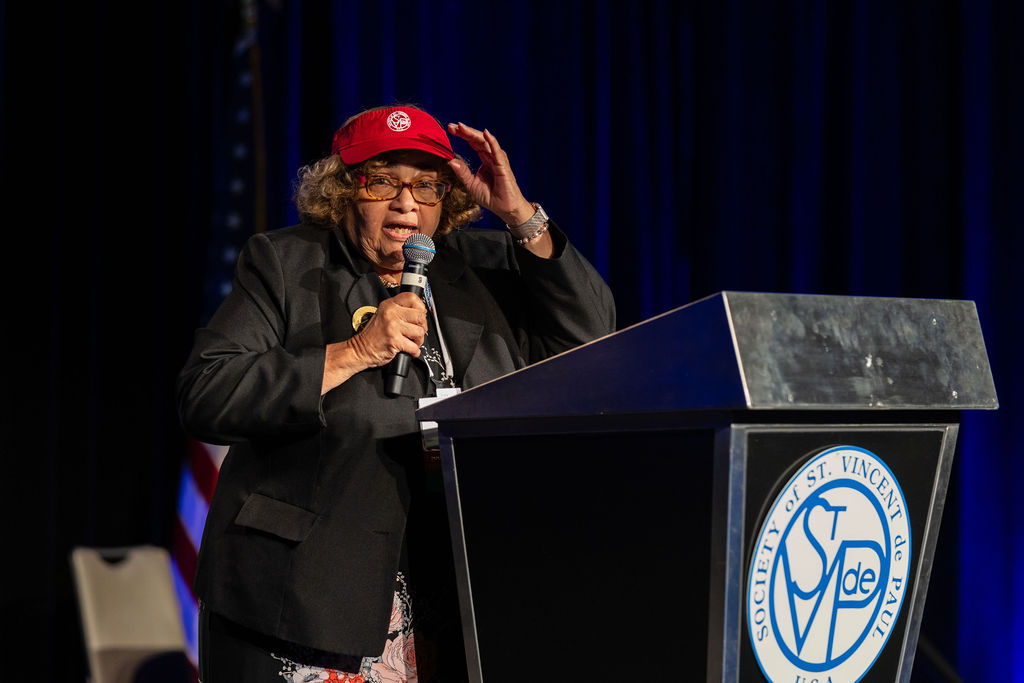
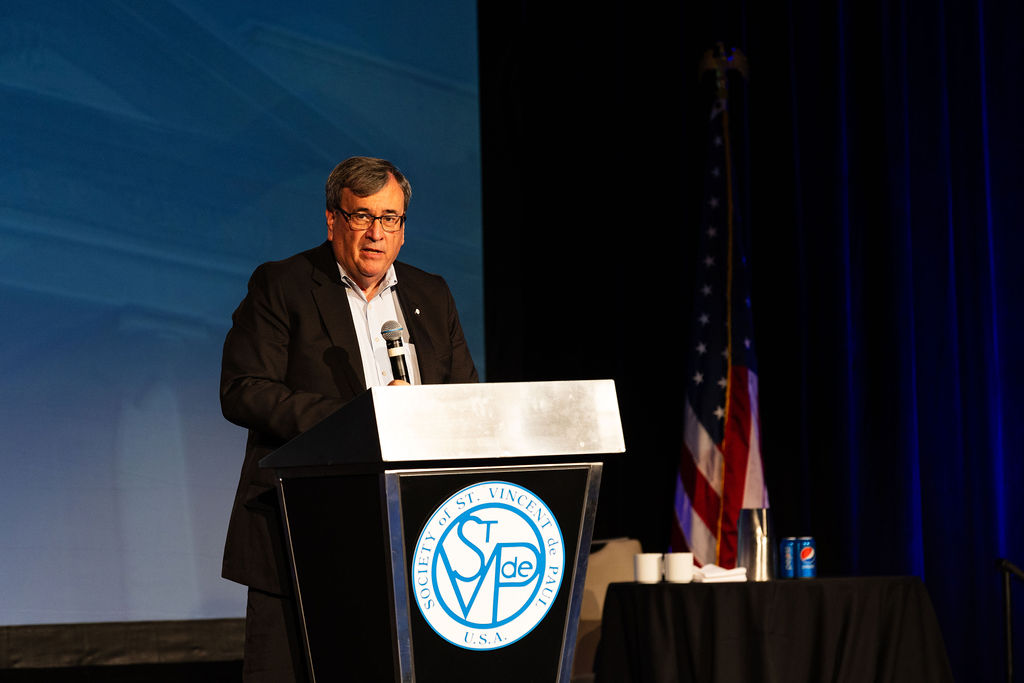
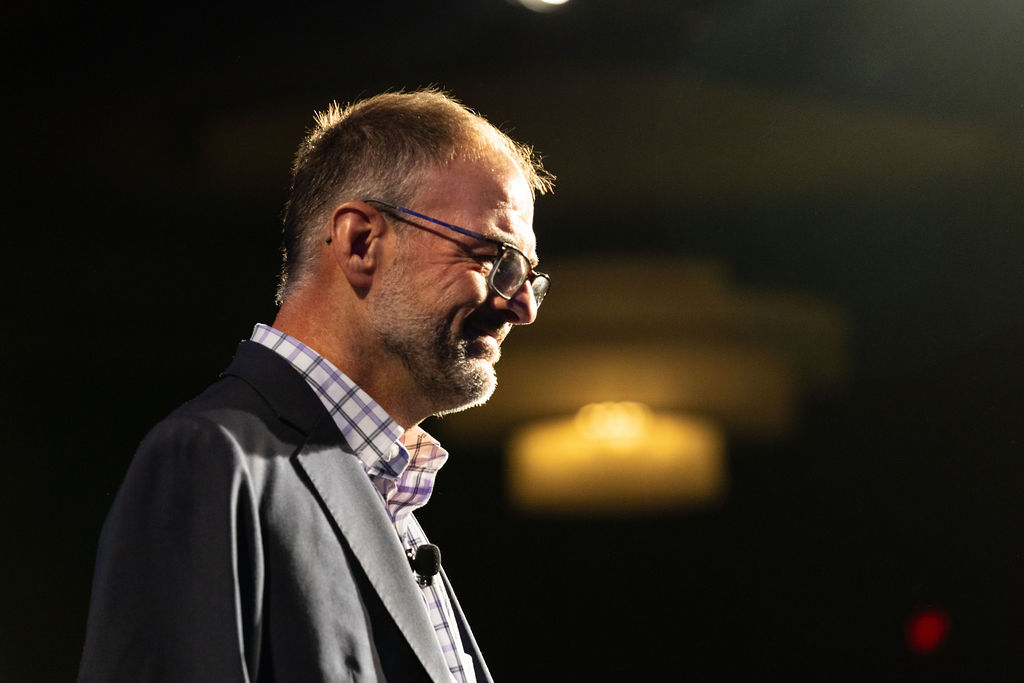
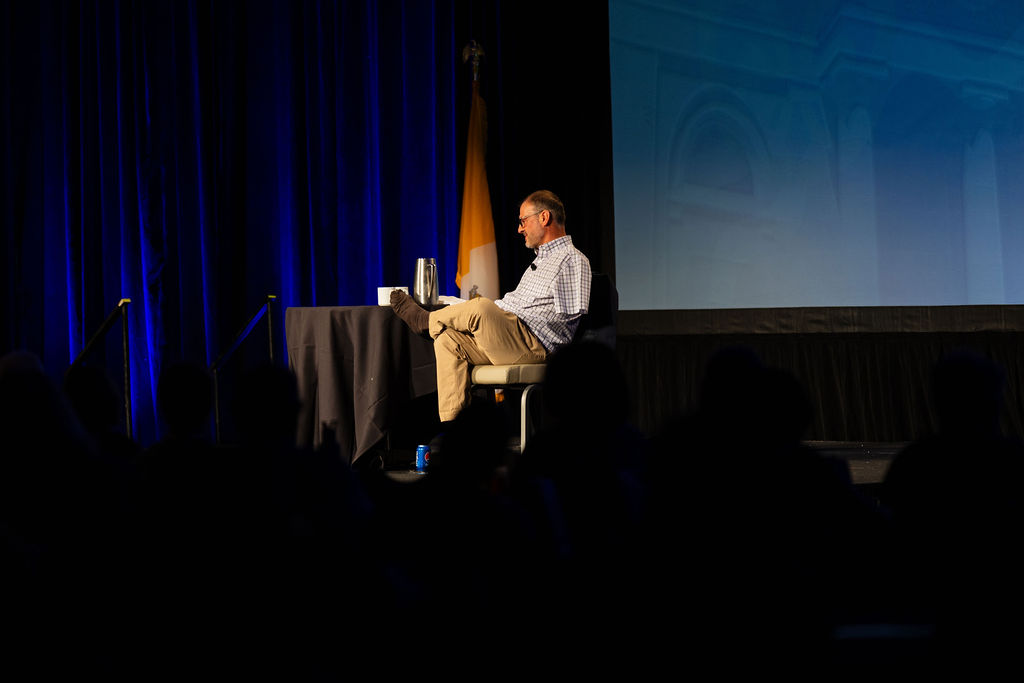
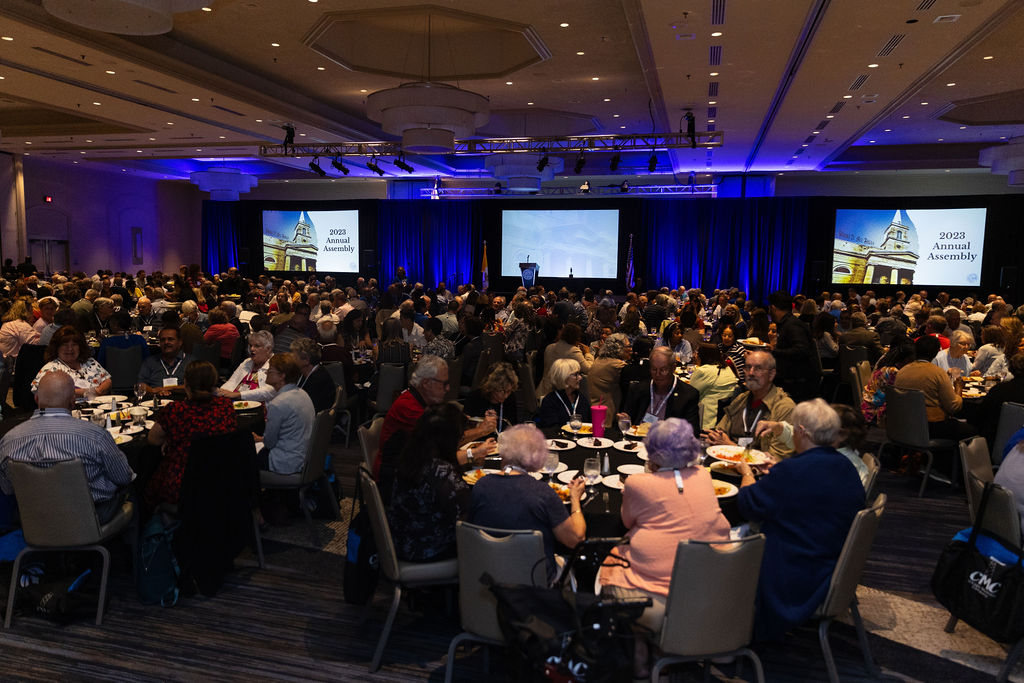
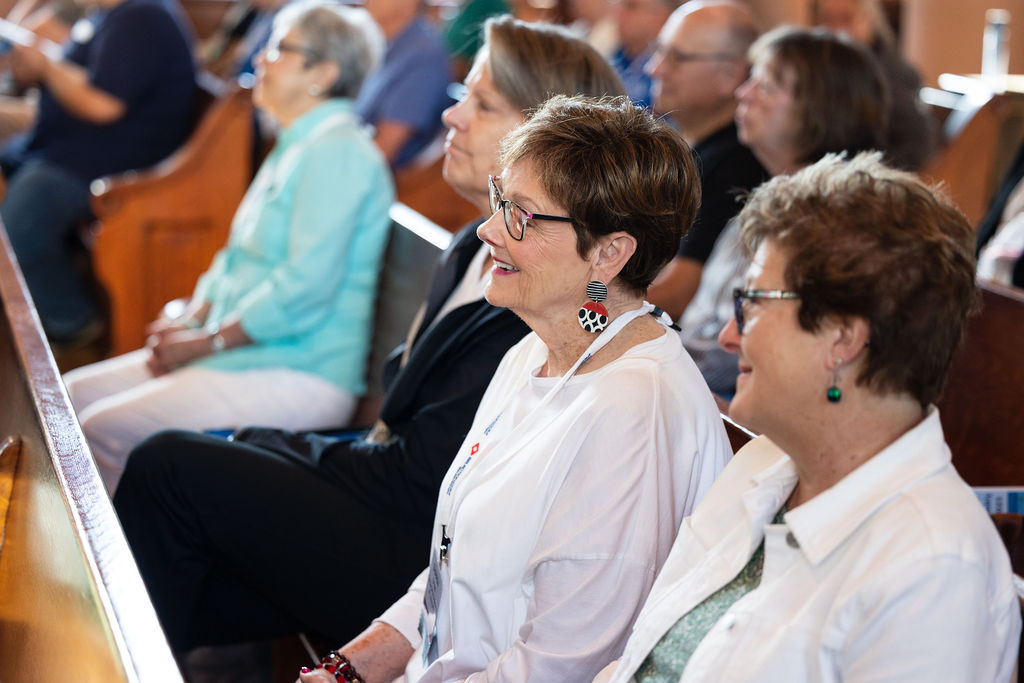
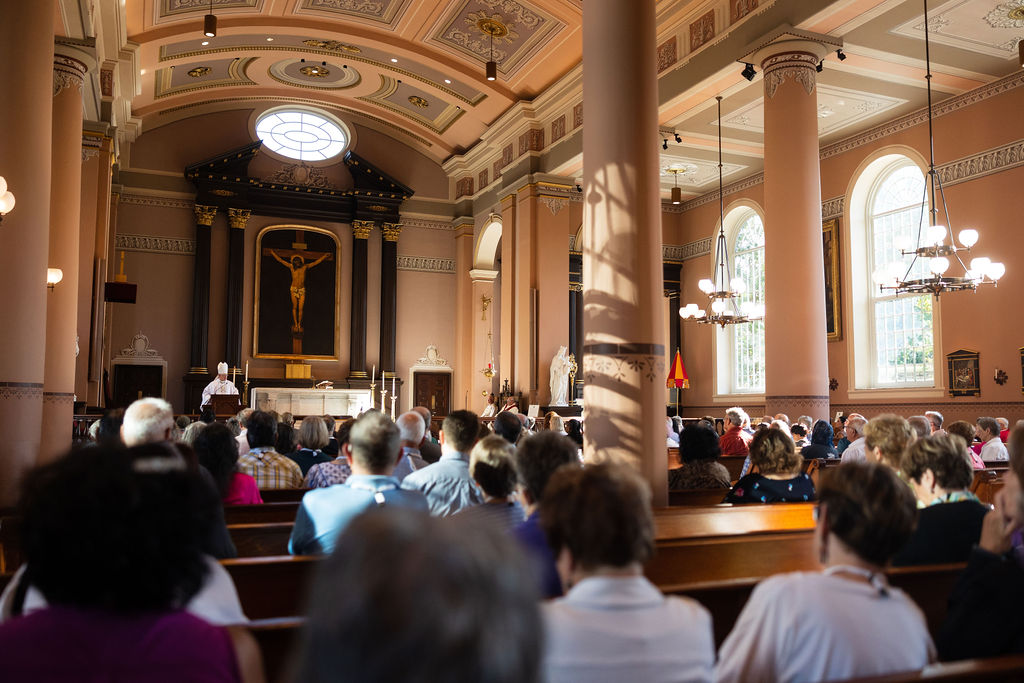
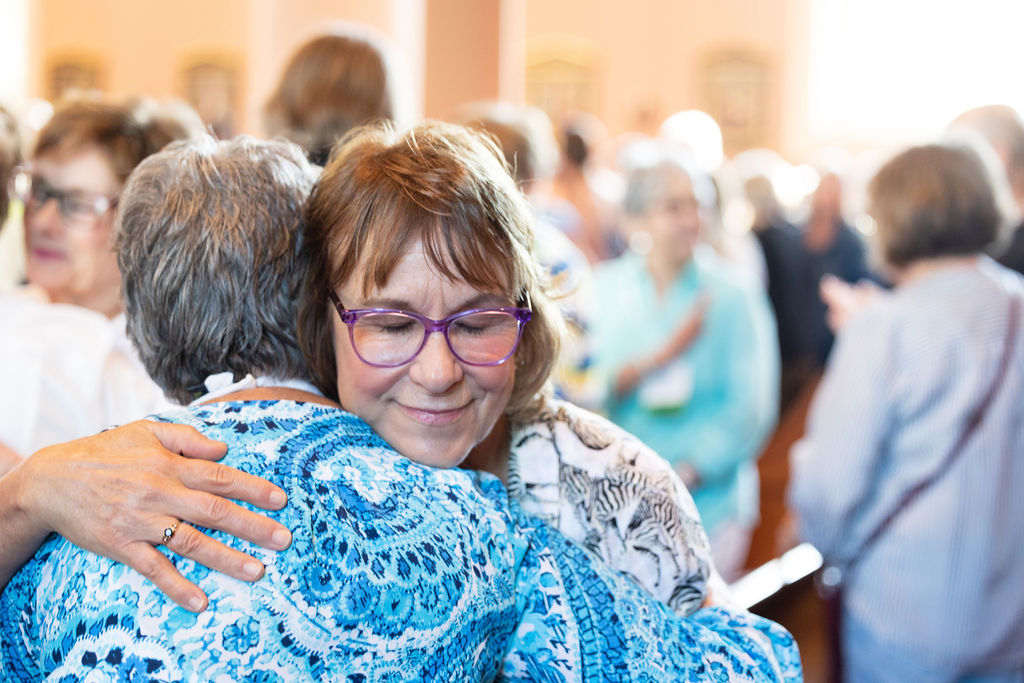
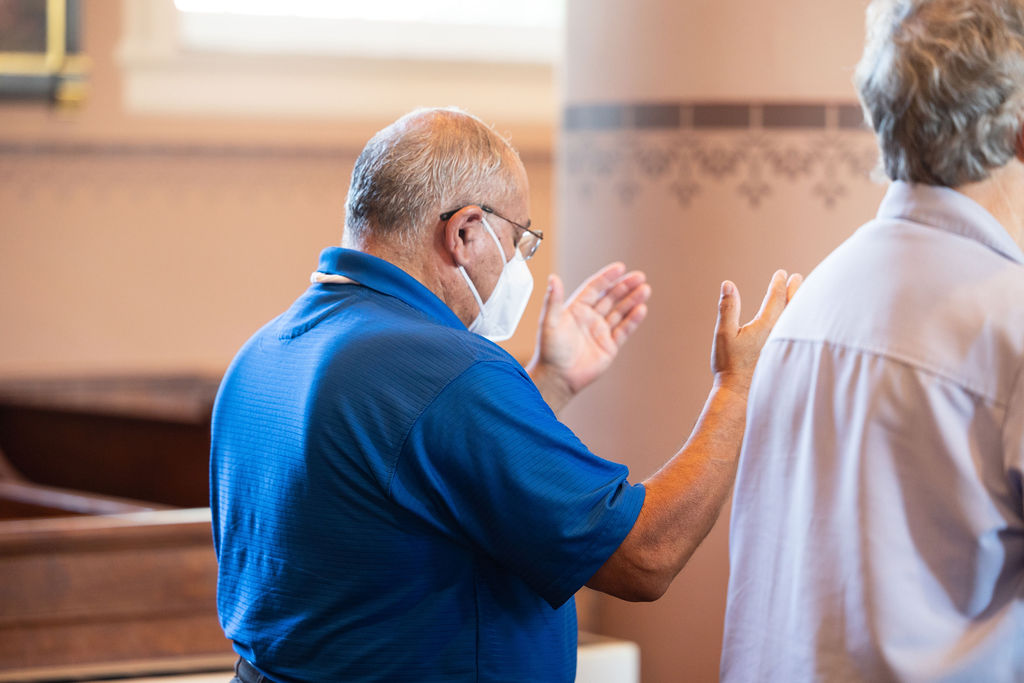
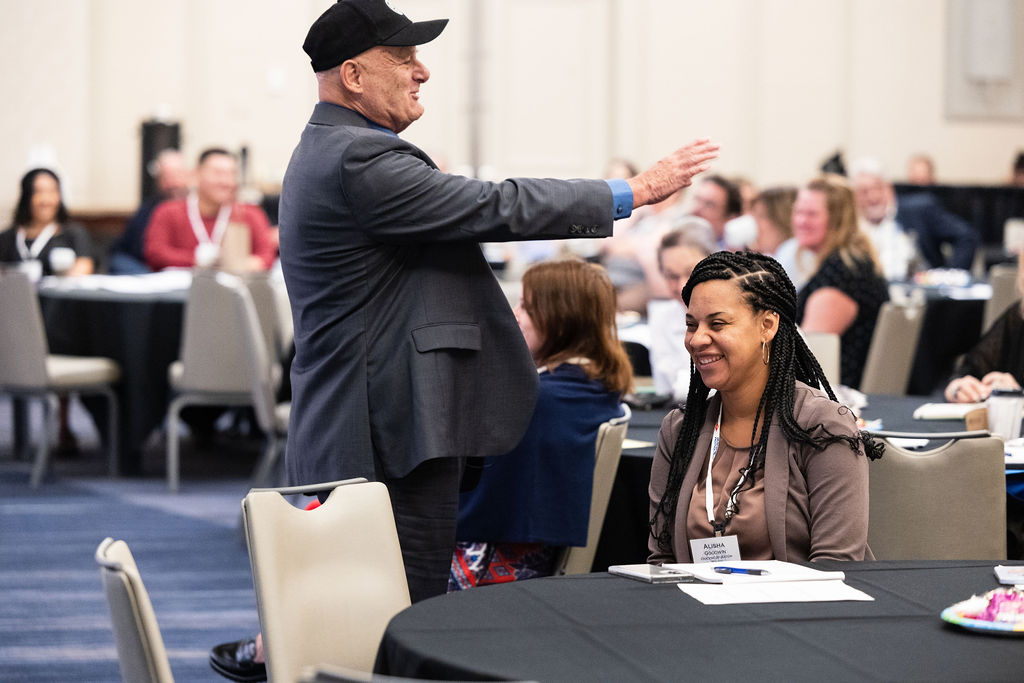
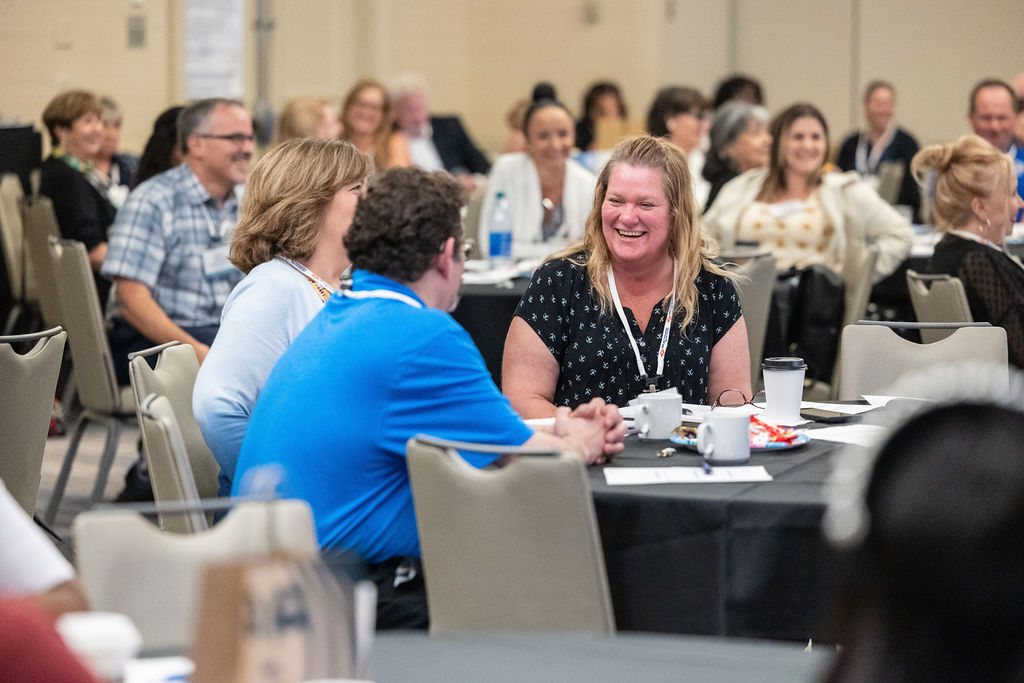
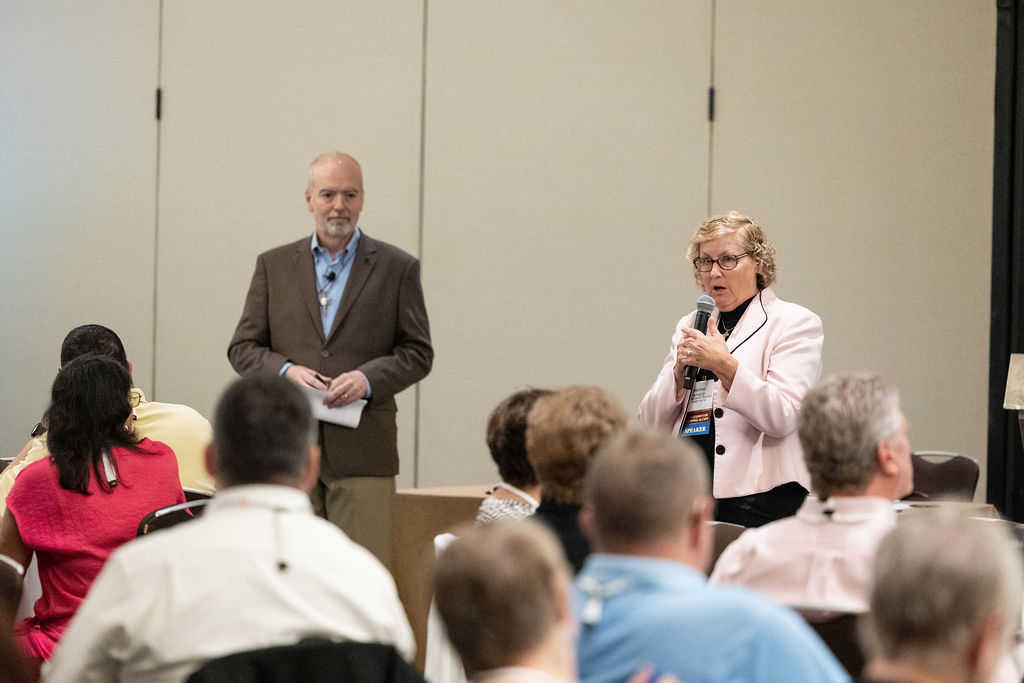
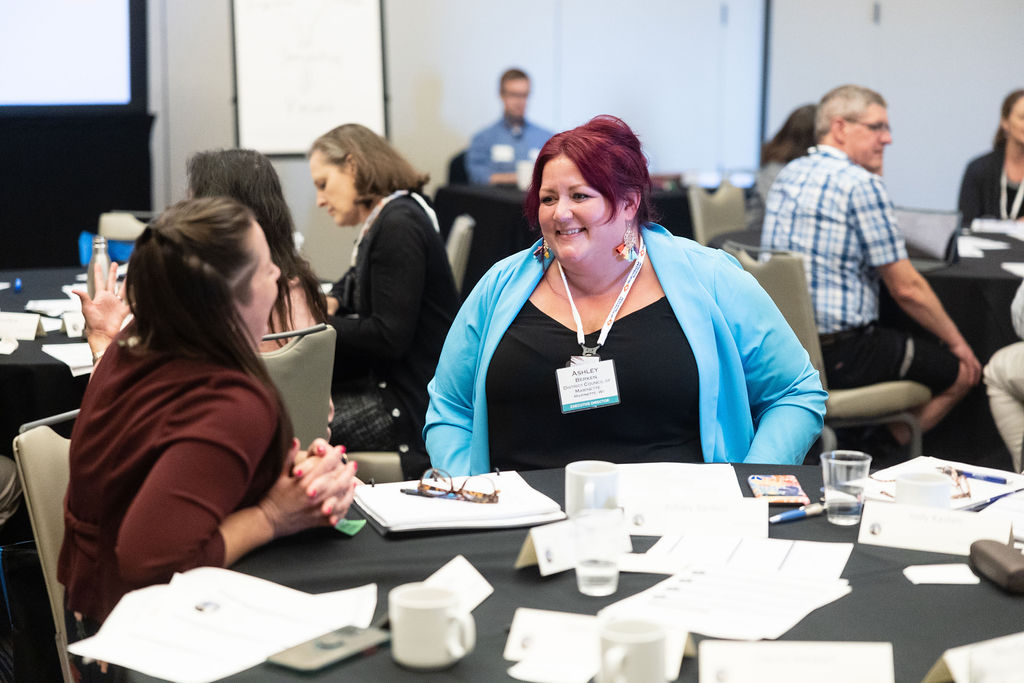
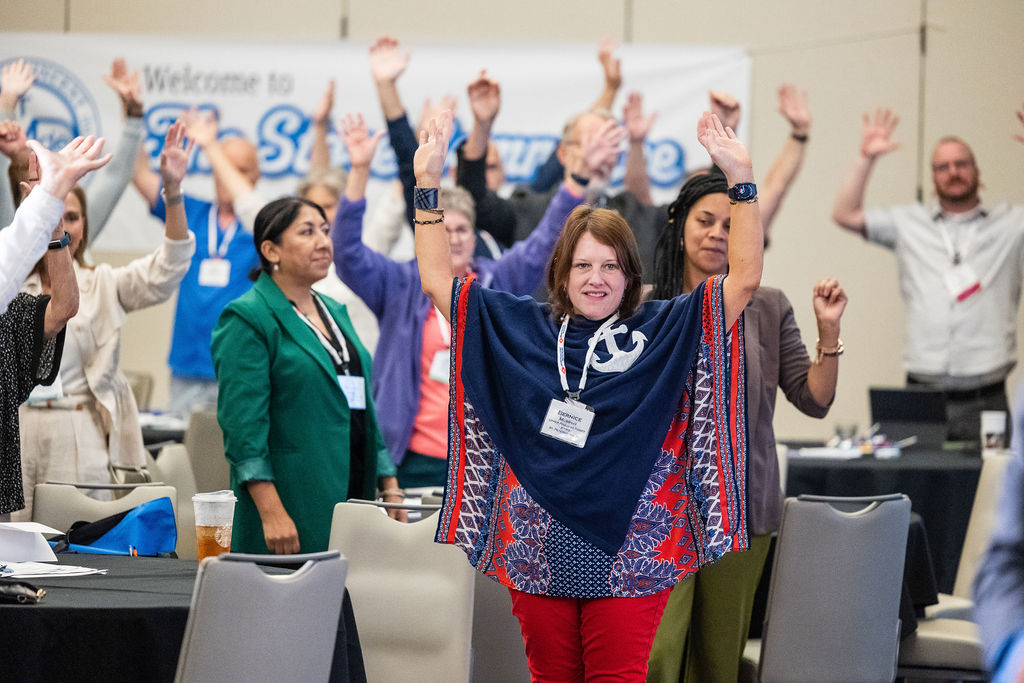
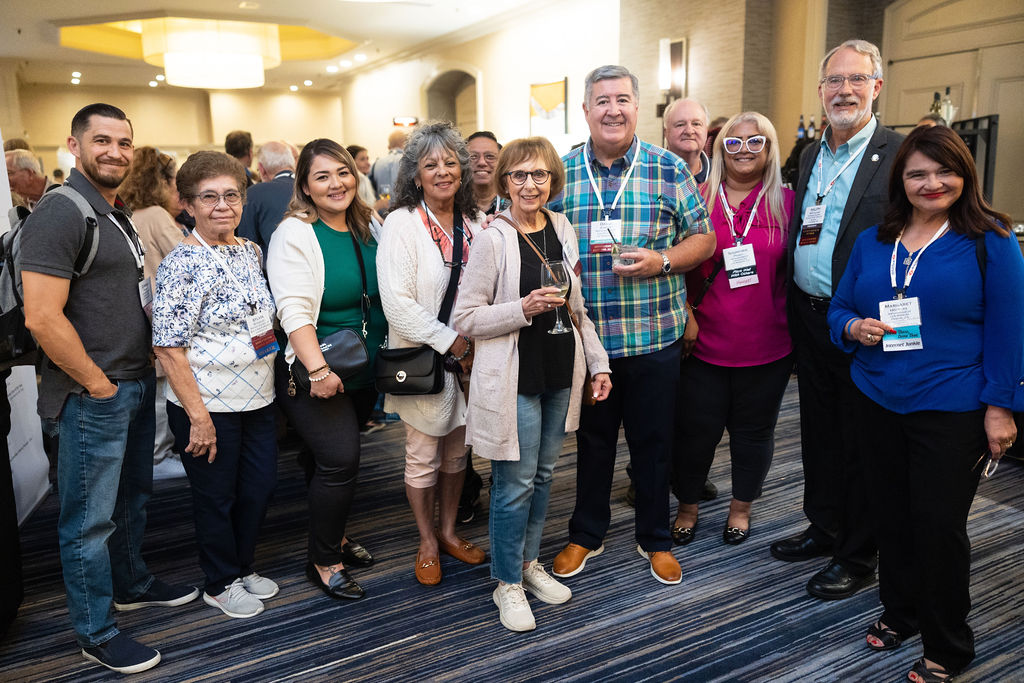
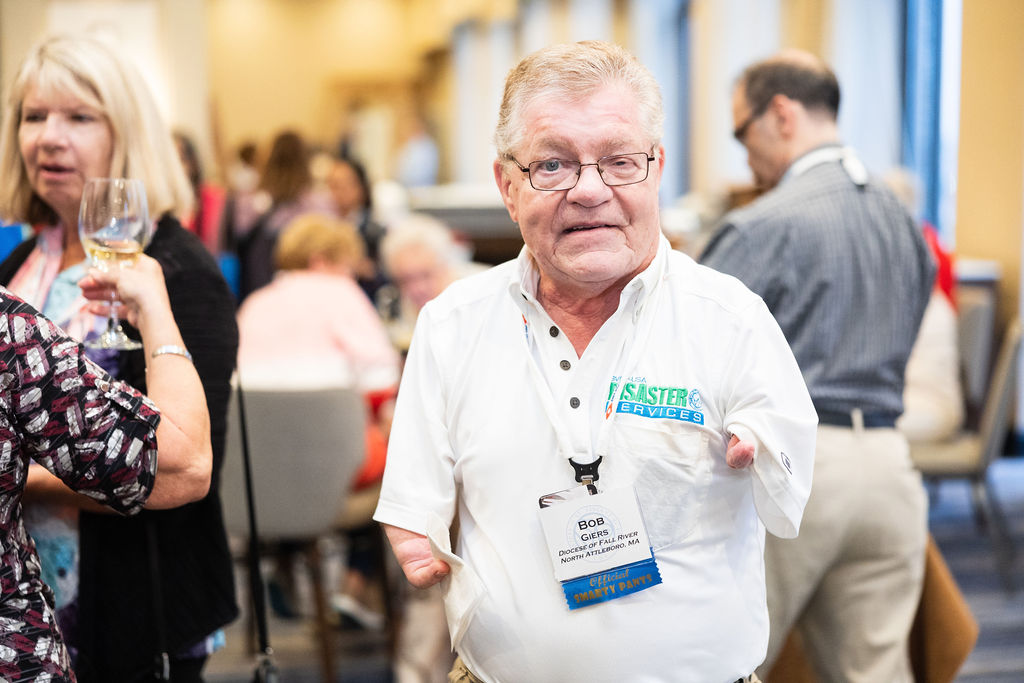
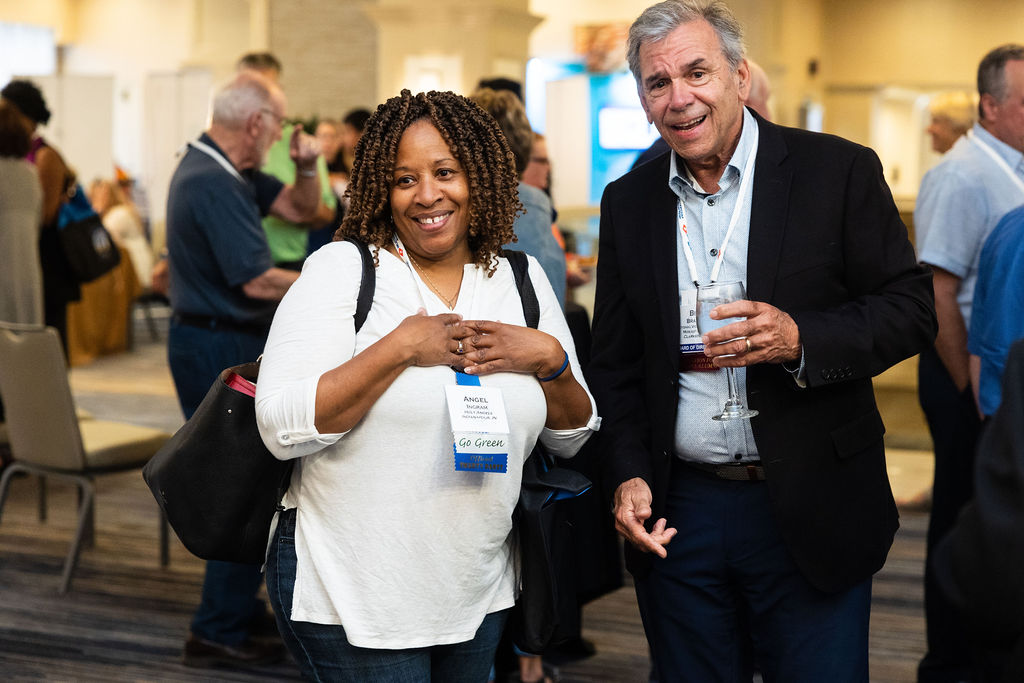
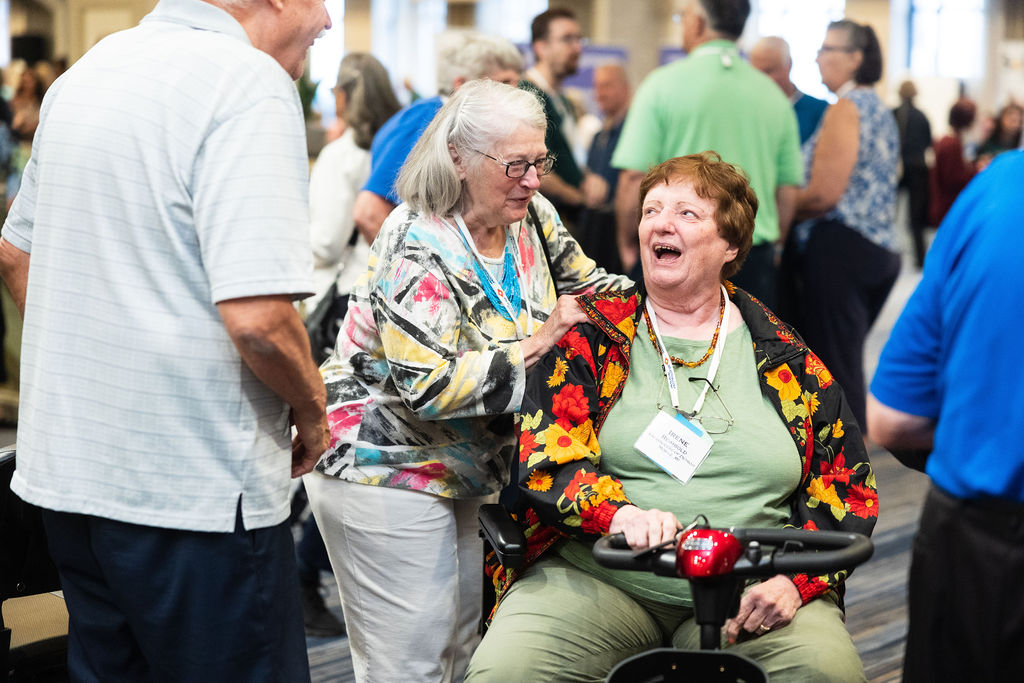
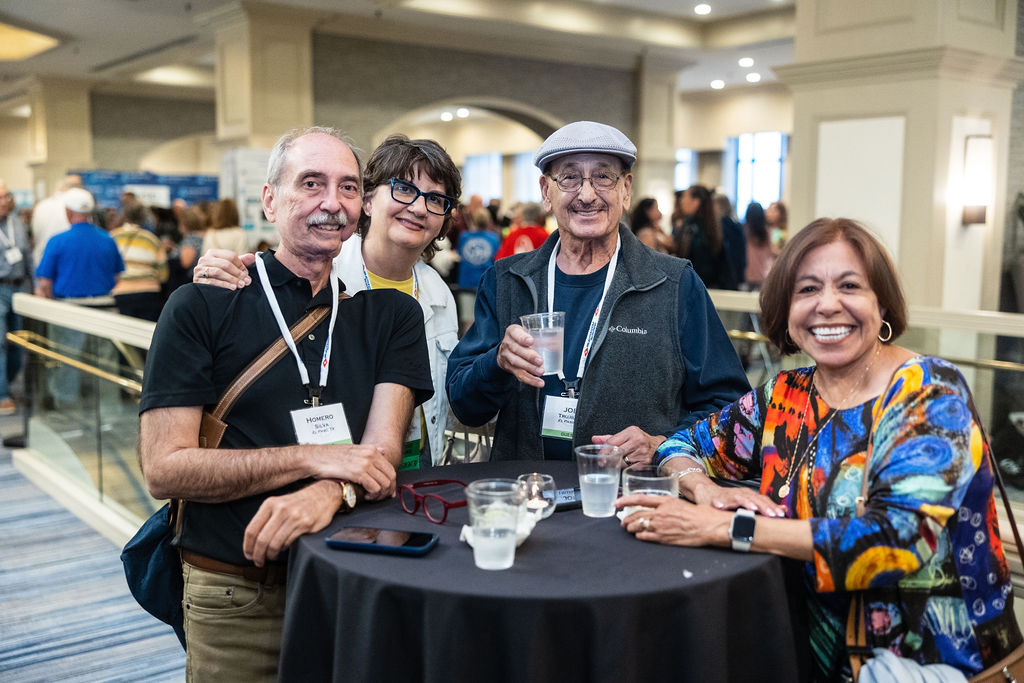
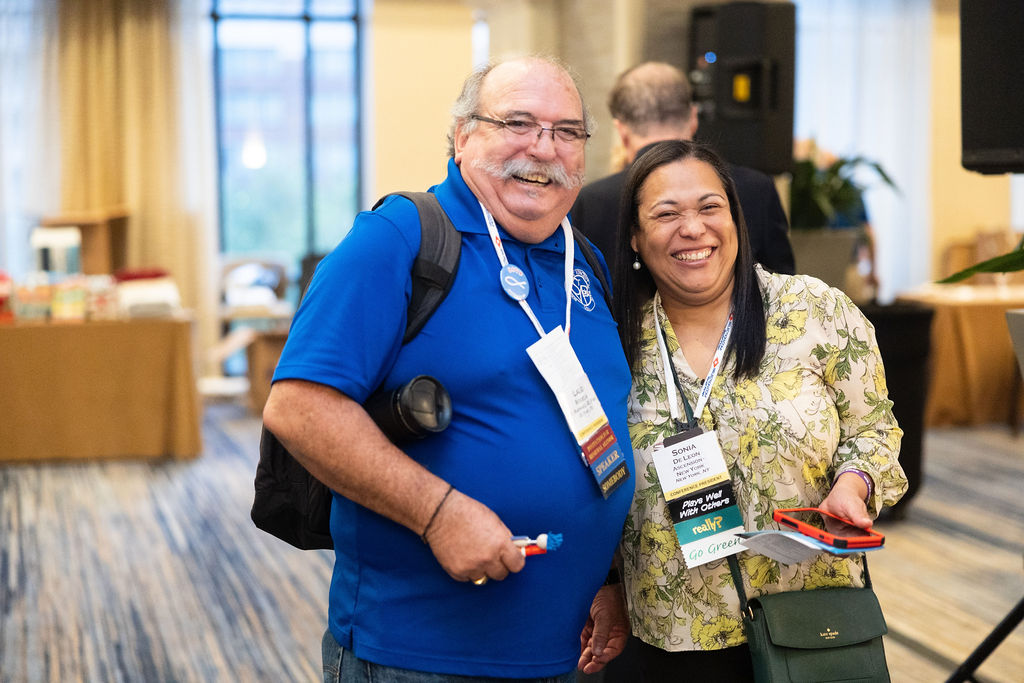
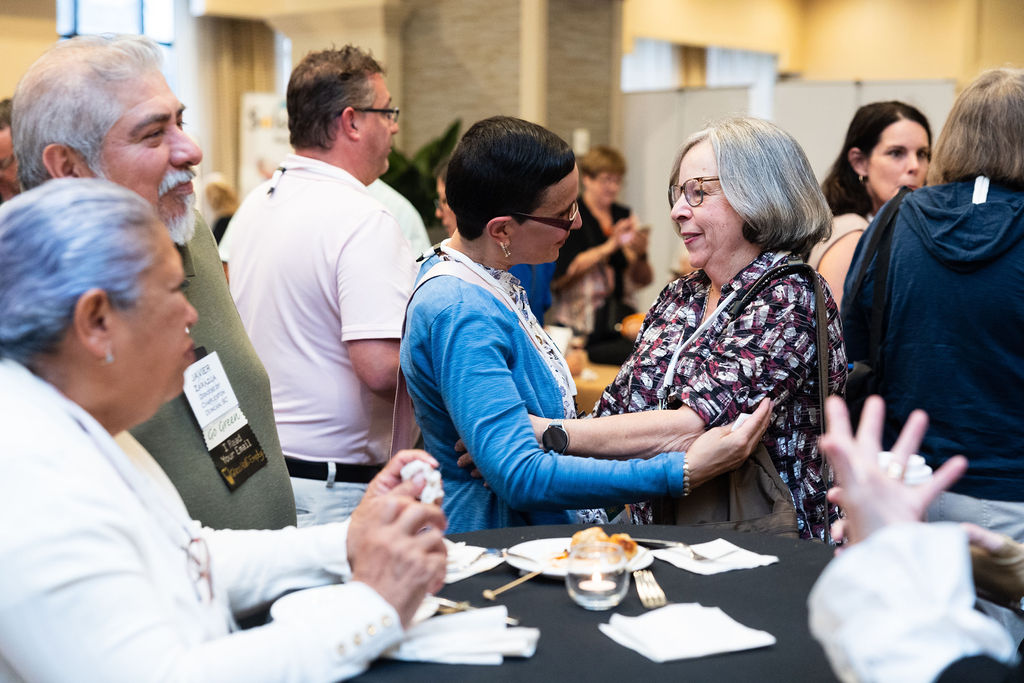
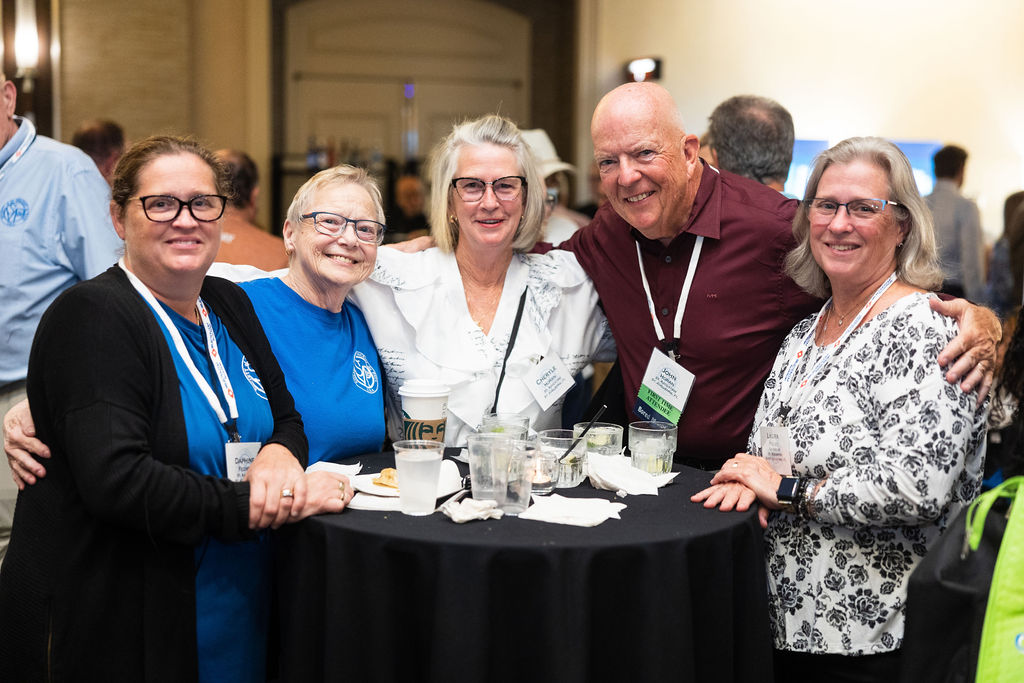
Outgoing National President of the Society of St. Vincent de Paul Ralph Middlecamp was recently honored with a special video tribute commemorating his time in office. Colleagues and friends shared memories and reflected on Ralph’s servant leadership.
You can watch the video here, then share your own tribute to Ralph in the comments.
It’s been just over a year since Tasha called the St. Vincent de Paul Conference at Sts. Joseph and Paul Catholic Church in Owensboro, Kentucky. “It changed my life,” she says. “I was at the point of giving up. I was absolutely at my breaking point.”
After having made some bad decisions in her life, she was determined to make good decisions, especially because of her two boys. She was holding down a job at McDonald’s, as was her 16-year-old son Jamison, both of them working different shifts so one of them could be home with 10-year-old son Jaxon.
Try as she may, Tasha could not make ends meet. She and her boys were living at a local motel. It wasn’t the life she wanted for them, but at least it was a roof over their heads, and they were together. After living at the motel for more than a year, someone suggested Tasha call St. Vincent de Paul to see if they could help.
She was scared to call, afraid that they would not help her family. But Tasha put her pride aside and picked up the phone to call the Vincentians at Sts. Joseph and Paul Catholic Church.
The Vincentian who returned her call that day was named Braun. Desperate to get her family out of the motel and into secure housing, Tasha told Braun that she had enough money for one month’s rent, but the landlord was requiring a deposit of another month’s rent. She wondered if St. Vincent de Paul could help her with the deposit.
Braun told her, “Do not give up. There is a way for St. Vincent de Paul to help.” With the amount of the deposit, he called a couple of other local churches to see if they could contribute. After securing the deposit funds, he called Tasha and told her she could go ahead and move into her rented home.
More good news was to come for Tasha. Braun called her again and offered her a job at Kentron, a metal stamping company where Braun works. Tasha said “I could not believe it. I was so excited and could not believe this was happening to me.”
There were more challenges to come, but Tasha and Braun didn’t give up.
Remembers Braun, “She did not pass her physical the first time, but there were extenuating circumstances. Her car broke down, so she ran all the way to the doctor’s office in the rain and was so out of breath she could not pass the physical exam. We had her take it again and she passed with flying colors. She wanted this job, this opportunity to change her life.”
During her probationary period, Tasha got sick and had numerous doctors’ appointments and tests, but the company stuck with her. Another hurdle came when the home she had rented went up for sale, so Tasha and her family would have to move again. Fortunately, she found one she loved. Her landlord has even entered a contract for deed sale, which will allow Tasha to buy the home.
“This is the beauty of being a Vincentian: Being able to help break the bonds of systemic poverty,” says Braun.
Tasha wants people to know, “There is a chance. There is hope that life can get better. But you must want to change your life. There is a power greater than us that can help if we want it to, and let it. My plans are to keep moving forward every day, to stay focused, to not give up, and to get up every day trying to do the right thing.”
There is an old saying that nobody, on his deathbed, ever said “I wish I had spent more time at the office.” Yet in a famous scene in the movie Monsieur Vincent, St. Vincent, near his own death, tells the queen that he has done nothing in his life. She asks then, if he has done nothing, what should the rest of us do? St. Vincent de Paul replies, “More.”
Vincent’s life’s work, though, was not a job! Likewise, for us, our work of charity is not a job, nor are we simply “volunteers”. Instead, ours is a vocation; it isn’t what we do, it is who we are. There is no question of “clocking out” for the day, for ours is a “vocation for every moment of our lives”. [Rule, Part I, 2.6]
A vocation is a calling; the word itself comes from the Latin vocāre, meaning “to call”. Every person is called; our church teaches, to the common vocation “to show forth the image of God and to be transformed into the image of the Father’s only Son.” [CCC, 1877] This common vocation takes a personal form, leading each of us to our particular road toward the perfection to which Christ directs us.
Our road is the Vincentian pathway. It leads us to Christ; it is our way of being Catholic. We sons and daughters of St. Vincent are called by his example to “love God…with the strength of our arms and the sweat of our brows.” [CCD XI:32] With these words, Vincent recalls that labor is the common lot of mankind since being cast out of Eden, sentenced to eat bread only by the sweat of our brows, but as Blessed Frédéric Ozanam put it, this “applies as much to the nourishment of the soul as of the body.” [Letter 6, to Materne, 1829]
Ours is not a job for pay, but a labor of love – to serve Him in the poor, the hungry, the lonely, and the desperate; to dry their tears, to offer our hearts, and to share with them this great hope that lights our path. “That is what is proposed to us, the sublime vocation God has given us.” Frédéric said. “Would that we were a little bit worthy of it and bent easily to its burden.” [Letter 90, to Curnier, 1835]
We needn’t be ashamed that we tire, from time to time, at the labor required to visit the poor, to stock the pantries, to answer the calls, to talk to the landlords, and even to fill out the paperwork, but let us always remember the Savior’s call to “Come to me, all you who labor and are burdened, and I will give you rest.”
And let us also ask Blessed Frédéric to pray for us, as he did for his brothers, “that you may know your vocation and will not fail in the courage to follow it…” [Letter 387, to his brother Charles, 1842] In becoming Vincentians, we answered His call, and each time the Conference helpline rings, He is calling us again.
How can I seek to do “more”?
One of the oldest traditions of the Society is our embrace of subsidiarity as our standard of operation. By this, we mean that Conferences and Councils have great freedom of action, empowering them to pursue local initiatives to help the poor spontaneously and effectively, without the burden of excessive bureaucracy. [Rule, Part I, 3.9] Bureaucracy, after all, is the hallmark not of Christian charity, but, as the word itself suggests, of what Bl. Frédéric referred to as “the assistance bureaus.” He explained that Conferences should instead keep in mind that each city “has different needs … and provides different resources” and not “tie [themselves] down with rules and formulas.” [Letter 82, to Curnier, 1834]
It only stands to reason, then, that it cannot be a remote Council that dictates the works of the Conferences, for it could have little basis to do so outside of “rules and formulas.” Councils instead exist not to supervise, but “to serve all the Conferences they coordinate.” [Rule, Part I, 3.6] As Emmanuel Bailly explained this relationship in an 1841 Circular Letter, Councils are “rather a link than a power” and in that link from Conferences to Councils and back, “there is neither authority nor obedience; there may be deference and advice; there is certainly, above all, charity; there is the same end, there are the same good works; there is a union of hearts in Jesus Christ, our Lord.” [Circ. Ltr. 14 Jul 1841]
Subsidiarity, then, works hand in hand with our Vincentian friendship, and our Cultural Belief in One Society. We are united by our Rule, by our Catholic faith, and by the celebration of our diversity in the many communities where we serve. We respect the Conferences’ determination of the best way to serve their communities in much the same way as Conferences are called to assume that the home visit team has “special insight into the best way to give help.” [Manual, 24]
Subsidiarity, of course, also is one of the four permanent principles of Catholic social doctrine, necessary to recognizing the dignity of the human person. It extends not only from Councils to Conferences, but to the neighbor, reminding us that it “gravely wrong to take from individuals what they can accomplish by their own initiative and industry and give it to the community.” [CSDC, 186]
This is one reason why, rather than dictating solutions for the neighbor, “Vincentians endeavor to help the poor to help themselves whenever possible, and to be aware that they can forge and change their own destinies and that of their local community.” [Rule, Part I, 1.10]
At times, it seems easier to simply dictate to others rather than allow them to make their own decisions, but subsidiarity calls Councils to respect the judgment of Conferences, Conferences of members, and members of neighbors. Subsidiarity, being rooted in respect for the dignity of the human person, is a measure of both justice and charity.
Are there times I become frustrated because I believe that “I know what’s best” for others?
